|
2/26/2022 France Withdraws From Mali, But Continues to Devastate Africa’s Sahel. By: Vijay PrashadRead NowOn February 17, 2022, French President Emmanuel Macron held a press conference in Paris just ahead of the sixth European Union-African Union summit in Brussels along with Senegal’s President Macky Sall and Ghana’s President Nana Akufo-Addo as well as European Council President Charles Michel. At the conference, Macron announced that the French forces would be withdrawing from Mali. This means that France and its European allies will start to wind down “Barkhane and Takuba anti-jihadist operations in Mali.” The protests in Mali against the presence of the French troops seem to have finally succeeded. Macron said that France had to withdraw its troops because it would no longer like to “remain militarily engaged alongside de facto authorities whose strategy or hidden objectives we do not share.” A statement appeared on the French government website signed by the European Union (EU) and by the African Union (AU) that made the same point, namely that “the Malian transitional authorities have not honored their commitments.” The language used by Macron and included in the AU and EU statement shows a lack of transparency about the real reasons behind the withdrawal of troops from Mali. The government of Mali (“de facto” and “transitional”) came to power through two coups d’état in recent years: Colonel Assimi Goïta, leader of the National Committee for the Salvation of the People of Mali, carried out the first coup in August 2020 against the elected government and installed Bah Ndaw, who was a military officer, as the interim president of Mali. Ndaw was then overthrown in a second coup in May 2021, when Goïta took over the position of interim president himself. By June, the European countries insisted that the new military junta hold elections by February 2022. Goïta said that he would honor this timeline. He did not do so, which gave the EU and the AU the excuse to break links with Goïta’s government. That’s the excuse being used by these regional powers to wind down operations in Mali. Matters become far less clear, however, when it comes to the statements that were made by France in this regard. Macron spoke about Goïta’s “hidden objectives,” but did not elaborate on that accusation. What could these “hidden objectives” be? Mali’s Troubles Mali’s troubles do not start and finish with the unrest in northern Mali nor with the military coup. If you were to ask Alpha Oumar Konaré, the president of Mali from 1992 to 2002, he would tell you a different story. When Konaré took over the presidency in Mali in 1992, the people were exhausted by the debt crisis produced by International Monetary Fund (IMF) policies and by military rule. They wanted something more. One of Konaré’s close advisers said during his time in office, “We service our country’s debt on time every month, never missing a penny, and all the time the people are getting poorer and poorer.” Konaré’s government asked for relief from the IMF so that it could marshal resources toward ensuring the development of the northern part of the country; the insurgency, Konaré argued, would be better confronted by development than by war. The United States government and the IMF disagreed. From Konaré’s time in office as president to now, Mali’s governments—whether civilian or military—have been unable to craft a policy framework to tackle endemic social and economic crises. It is true that there has been a long-standing rebellion in the north that has brought together the Ifoghas aristocrats among the Tuaregs and the Al Qaeda factions that came out of the Algerian civil war (1991-2002) and the destruction of Libya (2011-2012); none of the many peace agreements have worked largely because there is simply no money in Bamako, the capital of Mali, to promise the kind of development needed to undercut a million frustrations. Less remarked, but equally true, are the devastatingly poor social indicators in the rest of Mali, where hunger and illiteracy appear normal in Bamako’s bidonvilles. Western intervention in much of Africa has not resulted in beneficial economic assistance in the region. This assistance has come through IMF austerity policies and military aid. France’s 2013 military intervention into Mali came alongside its construction of a military project across the Sahel belt called G5 Sahel (including Burkina Faso, Chad, Mali, Mauritania and Niger) in 2014. The military in each of these countries received aid, and its officers received training. It is no surprise that Goïta, for instance, received training from the U.S. armed forces in Burkina Faso alongside Colonel Mamady Doumbouya, who carried out a coup in Guinea in September 2021; it is no surprise either that Lieutenant Colonel Paul-Henri Sandaogo Damiba of Burkina Faso trained alongside these men and carried out his coup in Burkina Faso in January 2022; and no surprise that in Chad, “General Kaka” (Mahamat Idriss Déby Itno), the son of the former president, was installed as the president by the military in what was effectively a coup in April 2021. Three of the G5 Sahel countries—Burkina Faso, Chad and Mali—are now led by a military government (Niger’s authorities thwarted a coup in March 2021). All the handwringing about why there are so many coup attempts in Africa these days fails to connect the dots: no agenda out of the IMF-austerity model is permitted by the Western states, which prefer to build up the military forces in the region rather than allow a genuine social democratic process to open in these key African countries. Discomfort With the Western Interventions In October 2021, Mali’s current Prime Minister Choguel Kokalla Maïga told a Russian news outlet that his government had “proof” that the French are training terrorist groups such as Ansar Dine. According to his interview, France had created an “enclave” in the Kidal region in 2013. “They have militant groups there, which were trained by French officers,” Maïga said. Kidal is in Mali’s north, not far from its borders with Algeria and Niger. Nothing Maïga said should have raised an eyebrow. France’s former ambassador to Mali, Nicolas Normand, made some similar comments in 2019 when he released his book on the continent, Le grand livre de l’Afrique. Normand told Radio France Internationale that Macron’s government forged ties with the National Movement for the Liberation of Azawad and with the aristocrats of the Ifoghas region to prevent them from making a rapid advance toward Bamako. France wanted to play the “good armed groups” against the “bad armed groups,” but in the end failed to see that both these groups were terrible for Mali. This approach, combined with the civilian casualties of the French military operations (22 civilians died when France bombed a wedding in Bounti in 2021, for example), turned the people of Mali away from France. French troops have now begun to leave Mali, but they are not returning to France. They will be deployed to next-door Niger, where they will continue their mission to prevent migration to Europe and to fight off the radicalized victims of IMF austerity (which often come in the form of frustrated young people, some of whom turn to terror). Macron’s eyes are on the French presidential elections, which are expected to take place in April this year, and on the rising tensions in response to Russia’s military intervention into Ukraine. Meanwhile, the people of Mali came to the streets to celebrate the departure of the French. Interestingly, many of the signs thanked the Russians. Perhaps the entry of Russian aid and mercenaries are the “hidden objectives” Macron was referring to? AuthorVijay Prashad is an Indian historian, editor, and journalist. He is the chief editor of LeftWord Books and the director of Tricontinental: Institute for Social Research. He is a senior non-resident fellow at Chongyang Institute for Financial Studies, Renmin University of China. He has written more than 20 books, including "The Darker Nations" and "The Poorer Nations." His latest book is "Washington Bullets," with an introduction by Evo Morales Ayma. This article was produced by Globetrotter. Archives February 2022
0 Comments
2/26/2022 Gennady Zyuganov: It is Time to Put A Stop to Nato’s Actions to Turn Ukraine into a Fascist State. By: Communist Party of the Russian FederationRead NowThe situation on the border between Ukraine and the Donbass republics has deteriorated to the limit. Ukrainian armed units are intensifying the shelling of the territories of the DPR and LPR creating the need for a mass evacuation of the population. Simultaneously the West and pro-Western and nationalist Ukrainian media outlets are stepping up the information war against Russia. The situation obviously points to close coordination of military provocations and information aggression. The US President is more and more openly masterminding the dangerous adventures. Biden personally announces mythical dates of the start of Russia’s war against Ukraine, comments on clashes in Donbass and reprimands Zelensky now for saying that he sees no signs of Russia’s preparations for aggression, now for making an ill-timed trip to the Munich Security Conference. In other words, Washington purposefully provokes growing tensions in Russia-Ukraine relations. The Central Committee of the CPRF has repeatedly noted that the aim of the US authorities and their London co-thinkers is final enslavement of Ukraine and bleeding Russia white. Simultaneously the project of undermining the economic potential of the European Union and diminishing its influence in the modern world is being pursued. War in the center of Europe, forced sanctions against Russia, and decline of economic activity in the EU would increase the competitive advantages of the USA. Washington, growing weaker in its global competition with socialist China, seeks to solve its own problems by wrecking the economies of its NATO allies. Today, those who play according to Anglo-Saxon rules habitually subject Russia to a barrage of accusations and “do not notice” the provocative actions of official Kiev. The fact that Ukraine is being step-by-step turned into a Bandera state has long been ignored. Western leaders pretend that they do not know the meaning and spirit of the Nuremberg Trial decisions. Big business in the US and Europe, which connived at Hitler’s coming to power, is today ready to connive at bloodshed and aggression. In the middle of the last century humankind paid for such policy with millions of human lives. The Soviet people alone lost 27 million lives of its men and women in the fight against Fascism. The CPRF is convinced that the West’s military blackmail must get a robust answer in the shape of Russia’s firm stand in defense of the civilian population of Donbass and punishment of aggressors. Putting a stop to the West’s actions aimed at turning Ukraine into a Fascist state is emerging as the key task of the world community. The situation prompts the following complex of emergency measures. First. It is necessary to help the children, women and old people – all the refugees from Donbass — who seek shelter from the war on Russian territory. We call on everyone to render them all the assistance they need. This work must involve the bodies of state power, parties and movements, enterprises and organizations and citizens of our country. Second. The appeal of the State Duma to the President of the RF to recognize the independence of the DPR and LPR is becoming ever more relevant. Today such a decision is emerging as the key to curbing the aggression against the two republics and to protecting their populations. Third. That Washington is implementing a multi-pronged plan to enslave Ukraine, demonize Russia and weaken Europe has become perfectly clear. There is no point in hoping for a dialog with the heirs of Bandera and Shukhevich, especially considering that they have powerful patrons. A series of measures must be taken to coerce the initiators of mass bloodshed into peace. Fourth. On the international arena the time has come to launch a decisive political offensive against any attempts at rehabilitation of Fascism. On the international arena the Russian authorities should use all the influence our country has at international organizations to that end. In mounting anti-Fascist and anti-war movements we propose to use the whole arsenal of bi-lateral and multi-lateral interaction with other countries, and make wide use of parliamentary and people diplomacy. Everyone should be aware that democratic mechanisms in Ukraine have been abolished. After the 2014 state coup real policy on its territory is increasingly dictated by aggressive nationalist bands. Representing an absolute terrorist minority, they hold Ukrainian people in fear and impose rules of behavior on members of the political establishment. This accounts for the political transformation of Vladimir Zelensky. Elected by Ukrainians as the president of peace in Donbass and normalization of relations with Russia he became a vehicle of the opposite kind of policy. In the current situation, the task of liberating Ukraine from the Bandera dictatorship cannot be solved by the Ukrainian people itself. The country’s civilian population is still partly able to express its opinion through what remains of parliamentary procedures, but it cannot oppose the forces of terror which are armed to the teeth. The task of denazification of Ukraine must become the key concern of the world community. AuthorCommunist Party of the Russian Federation. This article was produced by Communist Party of the Russian Federation. Archives February 2022 Anyone who reads Marx’s great work Capital today, and the number of new readers is growing, will find, before they hit the first chapter, six prefaces (four to German editions and one each to the French and English editions) and two afterwards (to the French and to the second German editions). Some readers just skip over these preliminary writings and jump into the text, which is fine. This is a good way to get right into the heart of what Marx has to say. But after the first chapter or so it’s a good idea to go back and read what you have skipped over. There are some very interesting remarks and comments from both Marx and Engels to be found there that, if kept in mind, will really help in understanding what Marxism is all about. My purpose here is to highlight some of these remarks that I think are particularly important and to comment on them. I invite readers to comment on this article if they think I have left out anything that should have been highlighted or have misinterpreted a passage. I am not going to go over all the prefaces and afterwards, just the ones I think are the most important. Marx: Preface to the First German Edition, 1867: Here we learn that the first volume of Capital is a continuation of Marx's 1859 work A Contribution to the Criticism of Political Economy, and that, in fact, the first three chapters of Capital constitute a summary of that earlier work. Marx also tells us that "every beginning is difficult" in science and that, therefore, the first chapter of Capital will be the most difficult. The chapters after it will be easy and straightforward. Since many people bog down in Chapter One and abandon the reading of Capital it is encouraging to note you just have to stick it out with this chapter and the rest of Capital will be easy going. Some even recommend reading this chapter last. If you find chapter one too much you should do so. In this preface we also learn that the laws of capitalist development appear to be universal. Marx has studied its development in England because that country was the most advanced capitalist country. We are told that what is at issue, however, is not how capitalism may develop in this or that country but the laws of capitalism themselves. The Chinese or Russians, for example, may think they are, or could be immune to the worst features and abuses of American capitalism, and maybe they could be today-- but the Marx of 1867 would not have agreed. He wrote, "it is not a question of the higher or lower degree of development of the social antagonisms that result from the natural laws of capitalist production. It is a question of these laws themselves, of these tendencies working with iron necessity towards inevitable results. There may be some confusion between "iron laws" and "tendencies" so let me just say that in Marx's model of capitalism the "iron laws" are really what we would call the logical consequences that result from the premises Marx derives for his model based on an empirical investigation of English capitalism. The real world is vastly more complicated than the model which serves as a guide to its understanding. The" laws" of the model become "tendencies" when they are applied to the understanding of actually existing capitalist systems. Once we understand the English model, Marx would have us believe that "The country that is more developed industrially only shows, to the less developed, the image of its own future." How to make sense of this? Will third world countries all develop along the path that led to US and European capitalism? Well, Japan did. But Russia industrialized under socialist motivated five year plans and the Chinese and Vietnamese are controlling capitalist development by state supervision, and by a state that is not in the control of the bourgeoisie. So things have become more complicated since 1867. Why were the Russian and Chinese Revolutions, just to mention two, accompanied with excessive violence (or so it seems to many)? Marx said that the American War of Independence (he does not here call it the American Revolution) was the "tocsin" for the bourgeois revolutions in Europe that followed it. He thought (too optimistically) that the American Civil War was the "tocsin' that would proclaim the coming proletarian revolutions in Europe. He thought "social disintegration" was very far advanced in England and would spread to the rest of Europe. The rising of the working class, Marx said, would be either humane or brutal "according to the degree of development of the working class itself." If Stalin or Mao appear to have been far too brutal we must remind ourselves that the development of the working class in their countries was at a very low level and that Marx had hoped that an advanced humane working class consciousness would have been possible to develop before a revolution. It didn't work out that way in those countries. Marx thought it would be to the "advantage" of the capitalist class to help the working class develop itself! Here is what he says: "Apart from higher motives, therefore, their own most important interests dictate to the classes that are for the nonce the ruling ones, the removal of all legally removable hindrances to the free development of the working class." So it is the capitalists who should have supported EFCA (the Employees Free Choice Act, abandoned by Obama in a classic double cross) along with the unions! Why is this so? Because a repressed and resentful working class may be a violent and brutal class when it seizes power from the capitalists and you will get Gulags! The capitalists are playing with dynamite when they try to repress the working people. That is, if the working people have developed class consciousness. As for skipping stages of economic development and great leaps forward, Marx had something to say about this as well. It is Marx's aim to discover and explain "the law of motion" of capitalist society. Even when that is done and we understand where capitalism is leading and that socialism will eventually be the outcome we can "neither clear by bold leaps, nor remove by legal enactments, the obstacles offered by the successive phases of [capitalism's] normal development." The best we can do is "shorten and lessen the birth-pangs." Not knowing the difference between these two approaches is responsible for all the failures of socialist states, just as correct application of these distinctions is responsible for their successes. Marx also wants to stress the scientific qualities of his work. Too often his followers dwell on the moral shortcomings of the ruling class. Such and such a person is evil, or driven by greed, and they are attacked personally and held responsible for layoffs, factory closings or economic downturns ('greedy bankers", etc.). But Marx says that his "standpoint, from which the evolution of the economic formation of society is viewed as a process of natural history, can less than any other make the individual responsible for relations whose creature he socially remains, however much he may subjectively raise himself above them." Marx foresees his views will be violently attacked irrespective of their scientific correctness since they will go against "the Furies of private interest" which are "the most violent, mean and malignant passions of the human breast." As I said before, Marx was too optimistic with regard to the coming end of capitalism which he thought was right around the corner. It was even evident to him that the U.S. was going to be involved in radical change. He says "Mr. Wade, vice-president of the United States, declared in public meetings that, after the abolition of slavery, a radical change of the relations of capital and of property in land is next upon the order of the day." That would have been the success, perhaps, of radical reconstruction. President Andrew Johnson didn't really forcefully back reconstruction and it ultimately failed. Mr. Wade was not the vice-president, there was no vice-president in 1867 when Marx wrote his preface. Benjamin Franklin Wade (1800-1878) was president pro tempore of the Senate and next in line to be president if Johnson had been removed from office as a result of his impeachment. Had he become president, reconstruction might have taken a different turn. Well, so much for the preface to the first German edition. Lets jump ahead six years and discuss Marx: Afterward to the Second German Edition, 1873: In this afterward Marx explains why economics (political economy) can no longer be studied scientifically outside of the socialist movement, or only so studied under certain limitations. The reason is that capitalism, as all other social formations, is the result of historical developments and has evolved certain characteristics that are historically conditioned and transient. The "laws" of physics may be eternal (e.g., the speed of light) but the "laws" of capitalist production are not. Thus if "the capitalist regime is looked upon as the absolutely final form of social production, instead of as a passing historic phase of its evolution, political economy can remain a science only so long as the class struggle is latent or manifests itself only in isolated and sporadic phenomena." The class struggle is in full swing today and we cannot expect bourgeois social "scientists" to be anything other than apologists for the capitalist system. The editorial writers for the Wall Street Journal, for example, cannot dispassionately write about health reform, bank regulation, workers rights, etc., in any scientific way involving a non partisan "search for truth." In England, Marx says, the last person to treat economic problems in an objective manner was David Ricardo (1772-1823) who wrote when "the class struggle was as yet undeveloped." He is still innocent of the historical nature of the antagonistic contradictions between the classes over wages and profits, profits and rent and sees them as an eternal "social law of nature." Capitalism and its contradictions would always be there just as the sun in the sky--- TINA as Ms. Thatcher said ("There is no alternative.") How far will our bourgeois economists today go out of their way to deny these contradictions and sing the praises of a harmonious society. Regardless of the evidence we are told how business and labor have to work together to make the "system" better as it is the only "system" that really works. Adam Smith and Ricardo lived in the infancy of the modern industrial world. The struggle between capital and labor then took a back seat to the struggle of the bourgeoisie and the feudal land owners. The first big cyclical crisis of capitalism was the crisis of 1825-- the direct ancestor of the recent (2008) economic meltdown, and the working class makes its debut as a force that actually could threaten bourgeoisdom in 1830 (cf. Victor Hugo's Les Miserables, the book not the Broadway musical!) The workers, however, won't realize their potential until 1848. After 1830, in Western Europe at any rate, the bourgeoisie was firmly in the saddle and the class struggle was underway in earnest. Marx said this "sounded the knell of scientific bourgeois economy." Now truth took a back seat to those Furies of private interest mentioned above. Truth became a question of what "was useful to capital or harmful, expedient or inexpedient, politically dangerous or not." This has been the case ever since-- from Ivy League economic departments to Fox news by and large even, or more especially, today we have in "place of disinterested inquirers" only "hired prize-fighters; in place of genuine scientific research, the bad conscience and evil intent of apologetic." And, we must admit, our Soviet and Chinese comrades were not above apologetics since once in power they were no longer "disinterested inquirers." It will be a big challenge for Marxist leaders, in and out of power, to establish truly disinterested centers of inquiry because only by a true understanding of reality can they hope to be successful and not repeat the tragic errors of the 1930s, 60s and 80s which led to show trials, the Cultural Revolution, and the demise of the Soviet Union and eastern European people’s republics. After 1848 there were a few bourgeois thinkers that recognized the legitimate claims of the workers and tried to "harmonize" them with the interests of capital. One of the best advocates of this harmonious society approach, Marx says, was John Stuart Mill (1806-1873) : yet he only produced "a shallow syncretism." Marx then recommends a book about Mill (Outlines of Political Economy according to Mill) by N. Tschernyschewsky ("the great Russian scholar and critic".) Don't bother trying to look this critic up under this name-- it is a terrible Cyrillic transliteration of the name of the Russian radical materialist proto-Marxist N.G. Chernyshevsky (1828-1889) the title of whose novel What Is To Be Done was used by Lenin for his work of the same name. Now, a few remarks by Marx on his method and his relation to Hegel. Some writers, who should know better, have criticized Marx for the use of Hegelian "jargon" and the Hegelian dialectic in writing Capital. But Marx is quite clear, in the Afterward, his dialectical method is the "direct opposite" of that of Hegel. Hegel thinks in the language of German Idealism and tries to construct his dialectic around the concept of the "Idea" as the basis of reality. Marx says that he himself studies external reality to see how we come to get the concepts and ideas (including that of the "Idea”) in the first place. Completely unlike Hegel, Marx sees "the ideal" as nothing more than "the material world reflected by the human mind...." With respect to Hegelian "jargon," Marx says he "coquetted" with Hegelian expressions a little in the chapter on value (i.e., chapter one) in order to avow himself as "the pupil of that mighty thinker" in response to the "peevish, arrogant, mediocre" critics of the philosopher who had raised their heads in Germany. Despite Hegel's mystifications, he was still the first to work out the form of a dialectical logic "in a comprehensive and conscious manner." With Hegel, Marx says, the dialectical method "is standing on its head. It must be turned right side up again, if you would discover the rational kernel within the mystical shell." I should also remark that while Marx says his method is the direct opposite of Hegel's, he and Hegel both believed in the dialectical principle of the unity of opposites. This is why Hegel is still read today but from a materialist perspective, and idealists can learn much from Marx. Finally, it should be noted that even now, in the twenty-first century, Marx and his dialectical method are too hot to handle in most economic departments and business schools in the capitalist world. The dialectic is, Marx says, "a scandal and abomination to bourgeoisdom and its doctrinaire professors" because it does not recognize the reality of TINA (there is no alternative to capitalism). The dialectic "includes in its comprehension and affirmative recognition of the existing state of things, at the same time also, the recognition of the negation of that state, of its inevitable breaking up; because it regards every historically developed social form as in fluid movement, and therefore takes into account its transient nature not less than its momentary existence; because it lets nothing impose upon it, and is in its essence critical and revolutionary." And, so now we move on to: Engels: Preface to the English Edition, 1886: One of the things Engels wants to do in this preface is to comment on Marx's use of certain traditional terms in political economy such as "rent," "profit." "commodity," "surplus," etc., which Marx has been accused of using in an idiosyncratic way. Engels agrees that Marx uses some of these terms slightly differently than they were used by his predecessors but that he is clear about when he does so and the reasons for doing so. "It is," Engels says, "however, self-evident that a theory which views modern capitalist production as a mere passing stage in the economic history of mankind, must make use of terms different from those habitual to writers who look upon that form of production as imperishable and final." I think Engels thought the revolution to replace capitalism was right around the corner. He says the boom and bust cycles of capitalism between 1825 to 1867 "seems" to be over and we are in "the slough of despond of a permanent chronic depression" and that a future "period of prosperity will not come." Well, he missed out on recognizing the tenacity of the capitalist system. We are now in another "slough of despond" but if it is permanent or not I will not venture to guess. We still have not really answered the great question that Engels says faces the capitalists in every depression: "what to do with the unemployed?” He thinks the unemployed might take matters into their own hands for he says "we can almost calculate when the unemployed losing patience will take their own fate into their own hands." I am afraid we can't calculate that either. But one thing is for sure. Engels says Das Kapital is often referred to as "the Bible of the working class." If the workers of the world want to come out of the ongoing crisis on top of the situation they had better start reading their Bible. Engels in fact makes that very same recommendation in this 1886 preface. The workers might very well be able to come to power in a legal and peaceful way in advanced capitalist countries. In the 1880s England was the most developed country by far and Marx thought that in England the social revolution "might be effected entirely by peaceful and legal means." That is what advanced democratic working people should aim for wherever democracy is advanced enough to allow for it. Marx did add that even if the workers achieved victory democratically he expected the ruling class not to submit and to wage a "pro-slavery rebellion" (a reference to the US Civil War). So, maybe not so peaceful after all. The challenge facing us now is to see how we can deal with the present ongoing world economic, as well as capitalist environmental, crisis on the basis of a modern understanding of Marx's great book. AuthorThomas Riggins is a retired philosophy teacher (NYU, The New School of Social Research, among others) who received a PhD from the CUNY Graduate Center (1983). He has been active in the civil rights and peace movements since the 1960s when he was chairman of the Young People's Socialist League at Florida State University and also worked for CORE in voter registration in north Florida (Leon County). He has written for many online publications such as People's World and Political Affairs where he was an associate editor. He also served on the board of the Bertrand Russell Society and was president of the Corliss Lamont chapter in New York City of the American Humanist Association. Archives February 2022 2/25/2022 The People of Ukraine Must Not be a Victim of World Capital. Statement of the CPRF CC Presidium. By: Gennady ZyuganovRead NowThe militarization of Eastern Europe after the dissolution of the Warsaw Treaty is a fact. Washington’s aggressive designs were demonstrated in the process of destruction of Yugoslavia. The plans of the US and its NATO satellites to enslave Ukraine must not be realized. These aggressive plans create critical threats to the security of Russia. Simultaneously, they blatantly contradict the interests of the Ukrainian people. The USA seeks to increase its competitive advantages in the global world at all costs. It is not deterred by the fact that sanctions against Russia, torpedoing of Nord Stream-2 and the threat of war in Europe spell heavy economic losses for eurozone countries. It is particularly important for the peoples of the world to become aware of the adventurous nature of Washington’s policy and recall the experience of broad anti-war movements. The unfolding of such a movement would ensure solidarity with the peace-loving peoples of Russia and Ukraine and protect their right to independent development. The CPRF proceeds from the need to dismantle the results of many years of efforts to Banderize Ukraine. Real policy on its territory is in many ways dictated by rabid nationalists. They terrorize Ukrainian people and foist on the authorities an aggressive political course. By caving in to this pressure Zelensky betrayed the interests of his fellow-citizens who had elected him as a president of peace in Donbass and good-neighborly relations with Russia. In the situation when the Russian Federation has taken a stand in defense of the people of Donbass, it is necessary to render every possible assistance to refugees and the civilian population of the DPR and LPR. We call on our society to render them all the necessary succor and support. Coercing Kiev provocateurs into peace and restraining NATO aggressiveness has become the bidding of the time. Only demilitarization and denazification of Ukraine can ensure lasting security for the peoples of Russia, Ukraine and the whole of Europe. We consider it important to make wide use of the methods of people diplomacy and humanitarian cooperation in protecting peace and preventing the resurgence of Fascism. The strategic position of the CPRF is well-known: the main guarantee of peace, creative endeavor and development is movement down the path of social progress and social justice, the path of socialism. Author Gennady Andreyevich Zyuganov has been the General Secretary of the Communist Party of the Russian Federation and served as Member of the State Duma since 1993. He is also a member of the Parliamentary Assembly of the Council of Europe since 1996. Originally published by the Communist Party of the Russian Federation. Archives February 2022 2/23/2022 Corporations Are Turning Public Schools Into Their Workforce Training ‘Pipelines. By: Jeff Bryant & Velislava HillmanRead NowA new study warns that career and technical education and advanced digital systems increasingly lock children into narrow school curricula and prescribed workplace futures. Nearly all public schools in the United States (98 percent) offer some form of career and technical education (CTE), and these programs, which were previously called vocational education or voc-ed, aren’t new to public schools. But what is new is the extent to which CTE programs have become exploited by big businesses and powerful actors in the marketplace to serve their own needs rather than those of students. With the 2018 revision to the Carl D. Perkins Career and Technical Education (Perkins IV) Act of 2006 (the main source of federal funding for CTE training)—which was replaced by the Strengthening Career and Technical Education for the 21st Century (Perkins V) Act of 2018—and other legislation, there are new pressures that these “programs of study must align with industry” and, as a result, ensure CTE is opening the door for businesses to exploit education resources and get unfettered access to students beginning as early as kindergarten. From January to June 2021, we (the authors of this article) carried out extensive research (currently awaiting peer review) across the United States, which involved speaking with families, children, and teachers to understand their concerns related to CTE and the web of policy that is paving the way for powerful corporations and technology companies to influence school curriculum design and the future of millions of children and young people. Specifically, we looked at the gradual annexation of CTE by big corporations through their development of tech-talent and data extraction pipelines. We identified that advanced digital systems further enable data extraction for student profiling and prediction, which can lead to the development of worker pipelines and a hyperspecialized career pathway for students. Career tracking through the use of these data extractive technologies can ultimately lead to locking children in prescribed futures that ultimately lead to long-term job insecurity. We interviewed families, children, and teachers from Virginia, Colorado, Tennessee, Ohio, Utah, and New York and analyzed curriculum proposals for CTE programs from big tech companies, presentations by education authorities, news reports, policy documents, white papers, and meeting agendas. Our conclusion is that the increasing influence of corporations in CTE will ultimately lead to a more oppressive learning environment in which powerful corporations will exert more influence over what children are taught in schools and how they will be trained for their future work lives. Further, the potentially harmful influence corporations have in public schools is being intensified by data extracting systems of precision that use predictive analytics that students and parents generally don’t understand, can’t access, and have no personal control over. How Big Corporations Assimilate Schools Businesses are naturally attracted to public education because students are a source to meet their future labor demand, and schools can be places to inculcate students and families to become loyal customers. For these reasons alone, educators have traditionally resisted the idea of businesses having a disproportionate role in defining education programs. However, the already thin wall separating businesses from public schools has for years been getting gradually worn away. In a 2011 report titled “Partnership Is a Two-Way Street: What It Takes for Business to Help Drive School Reform,” Frederick Hess and Whitney Downs of the American Enterprise Institute declared, “Business can provide the leverage, expertise, and leadership that will help educators and public officials make tough decisions and take hard steps they may not take on their own.” In 2014, meanwhile, then-CEO of ExxonMobil Rex Tillerson echoed similar views about the role of public schools in shaping the future workforce for corporations, saying, according to an article in the Washington Post, “I’m not sure public schools understand that… we, the business community, are your customer.” That same year, then-president of the U.S. Chamber of Commerce Foundation John R. McKernan assigned the public education system the task of providing businesses with “a steady pipeline of talent” and declared, “Business is the largest single consumer of the education system. We can’t afford to be passive consumers.” This thinking has welcomed the lobbying of powerful business leaders to assume that public education is up for grabs and can be molded depending on the workforce requirements for their future streams of operations at any point in time. Well-funded lobbying has led to legislation being passed that backs corporate influence and even promotes the idea of marketing K-12 students as a potential workforce to attract companies like Amazon to set up shop. For instance, to attract Amazon to build its East Coast headquarters in Virginia, president and CEO of the Virginia Economic Development Partnership Stephen Moret consulted economist Enrico Moretti, who “advised that the best way to lure more tech employers was to build out the pipeline of highly skilled employees through investments in education,” according to Washingtonian. “How did Virginia win Amazon HQ2?” Moret asked during a 2019 Education Summit after the deal was inked. “Other states pitched incentives; we pitched our educated workforce,” he said, according to a tweet by Chamber RVA, the chamber of commerce representing the entire Richmond area. Business interests that seek to further control public education have also been enhanced by powerful data systems imposed by legislatures of both the Democratic and the Republican parties and backed by countless enterprises and education technology companies to enable greater individual surveillance, profiling, predictions, and recommendations for developing school-based career pathways that leave children with fewer education choices. Less Voice and Choice for Students Despite the growing corporate influence in CTE, our research found that parents were generally concerned about the idea of having their children’s education, beginning as early as kindergarten, and the education curriculum being steered toward supporting someone’s money-making enterprise. Elly (the names of our subjects have been changed to protect their identity), a mother of two teenagers, described to us how her friend’s 13-year-old daughter found a corporation’s presentation in her school to be similar to a “cult” in the way that it described the children’s future as being part of its workforce solutions. “I just don’t think that’s what public education should be,” she said. “It should be teaching my child how to do all kinds of things. So that if after working for Amazon for five years, he wants to do something else, he can; he’s not stuck working for Amazon.” Similarly, Lilian told us about how Proseal, a provider of tray sealing technology, which was acquired in 2019 by the global technology solutions provider JBT Corporation, is making its way into her daughter’s school CTE effort under the guise that students would be given a course in environmental studies. The promotional material provided by the school was “so convincing,” Lilian said, adding that her daughter was shown video clips of “some of the field trips [other students had] gone [on] in the past” where students would go to a nearby bay or lake and “[were told] how clean the water was based on the life that was [at] the bottom [of the water body]—you know, all these really cool things.” However, when her daughter started the course, she learned that the only field trip that the students would take would be to the Proseal factory. “My mouth just fell open,” said Lilian. Her daughter said that the company is “trying to make more environmentally sustainable packaging for food,” so “Proseal is the [company] we keep hearing about that the county wants to partner with.” Many parents we spoke with felt disheartened when the school curriculum was changed in a way that forced their children to pick a path to college or a CTE course of study predetermined by data pipelines and career portfolios. John, a high school teacher, said, “[When] you go to [CTE], and you’re trained to work [for] Cisco Systems [a technology conglomerate], you’re not trained more generally in networking. I don’t want students to be trained to work in Amazon… Some of the technical education we have is good. I just don’t think it’s expansive enough.” Similarly, Nadia, another parent, said, “[The public school system is] making it so specific… so specialized [that] someone would graduate high school and [would] have spent two years learning how to be a lineman operator for the electric utility. In my county, Cisco Systems is being taught [in] CTE.” Miranda, a mother of four children who are all under 16 years of age, while speaking about the experiences of her youngest daughter in the new school system based on career profiling, said, “They told my child she shouldn’t be a vet tech, or they told my child she should be a baker. And I’m like, none of my kids are interested in that. It makes no sense.” Recalling how all four of her children grew up in the school system, she said, “It wasn’t like that with my three eldest kids.” Before the career portfolio existed, her children would have a “year-round orchestra… This career investigation thing wasn’t a thing.” So, her youngest child is the first one who got caught in the new system of career profiling. Even if a child doesn’t want to take on the option of career exploration, and “take a year-long arts music class instead,” another parent explained, “[the child will] have to take… [the career exploration option] in seventh or eighth [grade]; [they]… have to take it by the time… [they’ve] finished eighth grade; there is no opt[ing] out.” Miranda said, “Career orientations and explorations are not in themselves poor ideas in education”; however, like other families and teachers, she found it wrong to have corporations presenting a field of studies—and a future job option for her children—through the prism of their products. Colonizing Students for Corporate Employment The tailoring of K-12 education programs to the needs of corporate workforce preparation has a geographical dimension as well when businesses and government entities collaborate in drawing up borders within states to align education programs to the needs of local employers. Like plans that were used by Western colonial powers to carve up whole continents into arbitrarily drawn nation-states, these arrangements pair assumptions about family demographics, such as income and education attainment, with the labor needs of major employers in the region to develop an industry-aligned education program. One such example from Washington divides the state into 12 regions each with a local workforce development council that ensures a workforce education plan for the region is aligned with the state plan developed by government bureaucrats and representatives of the business community. Another example, in Virginia, divides the state into nine regions based on priority industry clusters in each region. In each of these examples, a region dominated by technology, finance, and consulting services is aligned to an education program that is very different from a region dominated by agriculture, mining, and manufacturing. A parent of two teens said, “These career clusters, you know, [are] … how the county public school is going to channel you to whatever ‘career cluster’ your county has been selected to specialize in.” How Big Data Enhances Corporate Power New data extracting technologies further defy any walls protecting schools and students from being co-opted by corporations and policymakers in order to create a seamless learn-to-earn loop in which data is used to evaluate how students perform and enable corporations and policymakers to sort students based on the skills businesses desire. Parents raised several concerns about how corporate influence in education has been further empowered by data tracking systems and predefined career pathways that have several long-term negative consequences. First, hyperspecializing education can lead to long-term job insecurity. It’s one thing to study computer science with subjects that span from philosophy to history to ethics; it’s quite another to be trained in corporate technology systems, such as Amazon Web Services (AWS), which can change unpredictably over time. Second, hypernarrow training can lead to societal subjugation. When individuals become hyperspecialized in one area, they remain highly vulnerable to the changes in the market. Accelerating technological development leaves them with no sense of security. This subjugation comes not from the top, but from the self—when the individual, insecure about his or her job, becomes self-focused and apolitical, demotivated, and de-opinionated, and thinks about that rooftop above his or her head and never beyond it. Third, specific CTE programs, and even whole academies, funded by corporations such as Ford, IBM, Dominion Energy, and others invest in education by selling the idea of personalized, in-demand, and accessible curricula as ‘improving’ education. However, parents we interviewed questioned whether these businesses are investing in education because of genuine concerns over good education or out of interests connected to their companies. When AWS foresaw the need to hire workers with cloud skills, Amazon announced in 2020 it would offer cloud computing skills training to more than 29 million people worldwide through its AWS CTE courses, virtual classroom training, and digital courses. In October 2020, Arizona announced plans to train and certify more than 5,000 high school students across the state in cloud computing skills by June 2022. In December 2021, Washington state and AWS announced an agreement to have more than 2,000 students freely access AWS training programs to earn computer-tech certification in high school. Fourth, hyperspecialization, and the long-term job insecurity that comes with it, hit the poor particularly hard. The social connotation of vocational training with poor-quality education has been historically a result of the social class inequalities imposed by cultural hierarchies. These dominant cultural hierarchies also determine who will be hired. This dynamic reproduces the system of social inequality and associates social class with one’s training and education. The development of artificial intelligence further enhances corporate interests in cherry-picking workers and generating an even greater sense of insecurity among them that leads to individuals feeling a constant threat of “extinction” if the knowledge and skills they had obtained during their school years haven’t guaranteed them employment and therefore security. That long-term sense of insecurity can further lead to a sense of unworthiness and a perverted version of “lifelong learning” that suggests individuals seem to never have learned well enough to deserve financial security. What strikes us in this research is the voices of so many families who want “a well-rounded education” for their children, the ability “to play an instrument,” to “not feel the pressure of what work they’ll do one day,” and to study “science that isn’t just computers but also all other things—botany, zoology, microbiology, earth.” Also, to our knowledge, there is a lack of empirical evidence for the effectiveness of CTE reforms influenced by corporations, with some researchers saying that CTE is “seriously understudied.” In our conversations with parents, children, and teachers, it became clear that a top-down approach of aligning public education programs with business demands is destroying any good intentions of CTE programs. Corporate influence is expanding well into the earliest years of schooling, turning public schools into agents of surveillance capitalism rather than protected spaces for unfettered learning and personal and intellectual development. AuthorJeff Bryant is a writing fellow and chief correspondent for Our Schools. He is a communications consultant, freelance writer, advocacy journalist, and director of the Education Opportunity Network, a strategy and messaging center for progressive education policy. His award-winning commentary and reporting routinely appear in prominent online news outlets, and he speaks frequently at national events about public education policy. Follow him on Twitter @jeffbcdm. This article was produced by Our Schools. Archives February 2022 Attention all Marxists! If you thought class struggle was the motive force of history, as certain manifesto writers have claimed, you are sadly mistaken. As a book by Daniel Lord Smail, On Deep History and the Brain, has come up with the true motive force. This book is reviewed by Steven Mithen ("When We Were Nicer," London Review of Books, and he informs us that Smail says the motive force of history is "the manipulation of human chemistry by the substances we consume" willingly or unwillingly. Smail's thesis is that our actions are based on the long ago evolutionary development of our neurochemistry. Smail also reverses the biology/culture relationship that holds that culture is derivative from biology. At least this is what Mithen says. We will see that this is not the case since it is going to be neurochemistry (biology) which shapes culture and history. History doesn't really begin at Sumer. It begins way back in the Old Stone Age (the Paleolithic) when the major neurochemical agents influencing our brain evolved. Many of these Paleolithic chemicals are still at work today. Smail says: "What passes for progress in human civilisation is often nothing more than new developments in the art of changing body chemistry." Mithen tells us this is not just a rehash of the "crude evolutionary psychology" of Steven Pinker, Leda Cosmides, John Tooby and others, but is a "far more sophisticated" theory. We shall see. Smail says human history begins way before the advent of writing five thousand years ago and the view that there was an "unchanging prehistoric past" and then "history" is wrong. Mithen, who is an archaeologist, is in tune with this view. So, apparently, is everybody else these days. This is a terminological problem (or non problem). Marxists use the term "history" to refer to the advent of class society basically about five thousand or so years ago in the Middle East and "gentile" or "clan" society for the non class societies of "prehistoric" times. They do not believe that prehistoric societies (and what is "historic" and "prehistoric" varies in different parts of the world) were "unchanging." Rather they were dynamic and rapidly evolving, or stagnant, depending on the physical environments they found themselves in and that they had to adapt to to survive. Homo sapiens arose from Homo erectus about 200,000 years ago and Mithen thinks, as do many archaeologists, that there was a radical break in human prehistory about 70,000 years ago "when the first unambiguously symbolic artifacts and body adornments are known" (Blombos Cave, South Africa). Right after this time H. sapiens began to spread out of Africa into the rest of the world. Mithen thinks that this has something to do with the final evolution of language. He also thinks, because of the "radical break" Smail may be wrong to deny some period of historylessness to the period prior to 200,000 years ago. Mithen says, "'the myth of Paleolithic stasis' may, in fact, be the reality prior to Homo sapiens." By the tenor of his own argument, it might be the reality prior to the "radical break" as well. Using the word "history" in a greatly expanded, and I think unhelpful manner, he says that Smail is right about "history" itself going farther back than H. sapiens. Mithin agrees that even chimpanzees and baboons "have history." This is because their current social reality is based on their past social reality. So almost everything is historical. Why stop at baboons? Why not include the birds and the bees? It is far more useful to apply the term "history" to the written or remembered record and keep the term "prehistory" for the deep past. If your group has no consciousness of "history", you probably don't have a history to be conscious of. New problems spring up when we leave the Old Stone Age for the New-- for the period called by Vere Gordon Childe (1892-1957) the great Marxist archaeologist of the first half of the 20th century, the time of the Neolithic Revolution. This is the period of about 8000 to 3000 B.C. (at least for Europe and its immediate neighbors). The previous mode of production had been hunting and gathering. Now we settled down to farming and soon to building towns and cities, classes, and the first state structures. So, I think, history does begin at Sumer after all. This doesn't mean prehistory is a blank. Childe calls the Neolithic a Revolution because, as a good Marxist, he saw the new mode of production, large scale agriculture, as a qualitative leap and change from the hunting and gathering of the past. This was due, as Mithen points out, to H. sapiens reaction "to the start of the Holocene some 11,600 years ago, with its warmer and wetter climate than the preceding Pleistocene." Smail calls this period "the fulcrum of the great transformation" of human history. This is exactly what Childe thought as well. Now we come to Smails' special theory. As a result of the Neolithic's new living conditions-- some humans began to settle down and give up the hunting gathering lifestyle. At this time, says Mithin, Smail says "our Paleolithic-evolved neurophysiology" begins to assert itself. The primate social structure, as seen in chimpanzees and baboons and based on domination "often" brought about by "random acts of violence" to keep lower ranking members of the group fearful and stressed out, begins to reappear. This argument does not seem to hold water. Mithen points out most hunter gathers have egalitarian societies. He says the evidence is that the "majority of Paleolithic hunter-gathers were egalitarian" as suggested, by the way, by Engels in his discussion of primitive communism in The Origin of the Family, Private Property, and the State. So the neurophysiology that we evolved in the Paleolithic would not have resembled the chimp-baboon model necessary for Smails' theory. Mithen, however, finds some of this new theory fairly persuasive. Smail says the new political elites that developed to control trade and agriculture "needed to control the brains and bodies of their subordinates by manipulating their neuro-chemistry." So they ruled by relying on "random acts of violence" against their people to keep them down through fear and stress, via the head baboon, since "control of agricultural surpluses or trade routes was not enough to maintain their power base." This is just completely unscientific speculation worthy of a vision of the Neolithic conjured up out of reading too many Edgar Rice Burroughs novels. Of course, Smail holds that the rulers were not aware of what they were doing-- Mithin says, "they were simply repeating what had seemed to work in gaining them power. Random violence is a winner every time." There is no evidence that the political elite in the Neolithic period used random violence against their people to maintain power. This is just speculation and guess work. Mithin however says that it wasn't just physical violence. People who know about the Neolithic site of Chatalhoyuk (Anatolia: 7000 BC) will find Smail's views "particularly striking and persuasive." Why is this? Because, at this site "we find horrendous wall paintings and sculptures showing decapitated people and monstrous animals." This is very emotive. Let’s give a more scientific formulation. Here "we find strange (to us) wall paintings and sculptures showing headless people and large unknown mythological animals. We do not know what the purpose of these images was. Perhaps it was religious." This is not the conclusion of Mithin. He simply asserts that these images show "a culture of suppression through terror, with-- no doubt-- a priestly caste benefiting from these visions of a Neolithic hell." Terror was used to "attack the body chemistry" of the people (evolved during the baboon Reign of Terror) to make them fearful and afraid of those "intent on maintaining power." These speculations are completely without merit. From the Neolithic we advance into the historical period proper. Since our neural states "are plastic and thus manipulable" we find that "new forms of economic, political and social behaviour emerge during the course of history." The six most important vis a vis our neurochemistry have become also the most important for human culture. The six are "religion, sport, monumental architecture, alcohol, legitimised violence-- and sex for fun." At least random violence is not on the list. These six are the "most effective in moulding and manipulating our body chemistry." So the Romans had it down with bread and circuses. First put the subject population under stress, then provide relief which advantages the ruling class. "What better way," Mithen notes, "for elites to build and maintain their power than to create stress within a population by a culture of terror and then very kindly to offer the means for its alleviation by arranging such events." Examples today would be professional sports, movies, and especially great events such as the Olympics. Mithin quotes Etienne de la Boetie (1530-1563) who in 1548 referred to sporting and theatrical extravaganzas as "tools of tyranny" and "drugs for the people." Methods used by others to influence or control our brain and body chemistry Smail calls "teletropic mechanisms." Those we use on ourselves are "autotropic." Mithin points out that it "is far better for those in power to be in control of their subordinates' body chemistry than to leave it to the subordinates themselves." This is why many religions, for example, as ruling class tools, reject such autotropic mechanisms as masturbation, sex for fun, alcohol, and recreational drugs. The state, in fact, seeks to regulate and control autotropic mechanisms as far as possible. The plot thickens. The world historical change from the Middle Ages to our modern world may be better explained by the manipulation of neurochemistry than by Marxist theory. The European discovery and use of tea, chocolate, coffee, and tobacco allowed people to regulate their own brain chemistry, for these items are all autotropic. The history of all hitherto existing society is the history of the struggle between autotropic and teletropic mechanisms. Smail is credited with Mithin's comment that the "Making of the Paleolithic relevant to the drinking of tea is no mean feat." Two quotes from On Deep History and the Brain sum up the argument and bring us to the book's grand conclusion. "We can finally dispense with the idea, once favored by some historians, that biology gave way to culture with the advent of civilisation. This has it all backward. Civilisation did not bring an end to biology. Civilisation enabled important aspects of human biology, and the drama of the past five thousand years lies in the fact that it did so in ways that were largely unanticipated in the Paleolithic era." The second quote is "we need not dig only in the dusty topsoil of the strata that form the history of humanity. The deep past is also our present and future." What Marxist would disagree with this first comment. It only says that human potential has been increased by the inventions of civilization and that these inventions were not foreseen in the Old Stone Age. What Smail means is that the brain chemistry that evolved in the Old Stone Age was not adapted for the changes that lay ahead, it being oriented towards the teletropic. But we have already seen that H. sapiens in the Paleolithic was largely egalitarian (primitively communistic) and so autotropic. The evolution of our brain chemistry fits into any type of society it would seem. As for the notion of the "deep past": it is of course true that we are the product of evolution, of animal ancestors and that this heritage remains with us today and forms part of our nature. Who, since Darwin, would deny that? The question remains, how are we best to understand history, the rise of capitalism, the contradictions of imperialism and the way to overcome them and proceed on the road to socialism? Historical Materialism, the theories of Marx, Engels and Lenin are still to my mind the best methods to use to answer these questions. It is true that candy is dandy, and that chocolate, masturbation, and alcohol are handy autotropic devices, but they won't replace class struggle and the analysis of the means and modes of production as ways to change the world. Political power does not grow out of a Hershey bar. AuthorThomas Riggins is a retired philosophy teacher (NYU, The New School of Social Research, among others) who received a PhD from the CUNY Graduate Center (1983). He has been active in the civil rights and peace movements since the 1960s when he was chairman of the Young People's Socialist League at Florida State University and also worked for CORE in voter registration in north Florida (Leon County). He has written for many online publications such as People's World and Political Affairs where he was an associate editor. He also served on the board of the Bertrand Russell Society and was president of the Corliss Lamont chapter in New York City of the American Humanist Association. Archives February 2022 2/22/2022 Socialism in the Natural State: Newspapers of the socialists of Paragould. By: Arkansas WorkerRead NowIt’s hard to believe, but Arkansas at the turn of the 20th century was a hotbed for radical labor organizing and socialist thought. In this series – Socialism in the Natural State – we’ll be shining a light on this lesser-known side of Arkansas history.
The Call to ActionThe edition accessed at the state archives was Vol 1, Issue No. 4, published March 27, 1912. Here are a few transcribed articles: Workers: Unite and Vote the Socialist Ticket
As means to this end we advocate the following measures:
LANDLand is the chief source of production. From it we get our food, shelter and clothing; in fact, everything for use or convenience. Without land a man has no place to live or labor and becomes a wanderer in this world. Land, being a necessity to the individual and to society in general, it becomes a crime to let any man or set of men, own land or mineral resources for the purpose of robbing others in the form of rent, interest or profit. Socialism means to do away with the three means of exploiting. To do this we must have public ownership. Now the question arises: How can we get control of the land? Back in the early thirties when that noble band of agitators was teaching and urging the people to convert the private schools into free public schools, the same question was asked of them. The Socialist Party has never formulated any specific plan as yet, but as an individual I will express my ideas. To me there would be three ways: First, purchase; second, competition; third, confiscation. We, as a great nation, could pay for lands in a short time if the fictitious valuation is gotten rid of. Second: We still have sufficient public lands upon which to put the great army of the unemployed to work. That would make the privately owned lands less valuable. The private owners could not then get anyone to rent their lands if they (the workers) could, through co-operation, get the full product of their labor, therefore private land would soon be given over to the government for taxes. This would do away with the land speculator. The owner of a home and a small tract of land would continue to stay and use it. If he wanted to sell he could sell his improvements, but not the land. The improvements would be private property and would represent his individual labor and no one would have a right to it. But he did not create the land, so he has no right to hold it as his own. Third: Truthfully speaking there is no real title to land. It was first taken by might through war, then given to the ruler’s friends and pets, then to the land grafters, then to the individual. And, by right, all should be legally handled for having in their possession stolen property. America belonged to the Indians [unintelligible]. They did not record their deeds and titles, yet in a crude way they enjoyed the use of the lands as a whole, the proof of exploitation being so plain. I think the whole people are the rightful owners of all lands and must have their own. To take back what has been taken away from you is no harm. The writer has not been very explicit in this article. He leaves room for thought. Each individual must think for himself. Any further questions on this subject will be carefully answered if you will write to this paper asking the editor for the desired information. Greene County SocialistThe edition accessed at the state archives was Vol 1, Issue No. 45, published April 4, 1914.
Force Girls Into Vice Mr. Barrett made an investigation of Greek coffee houses in St. Louis. He questioned twenty-nine girls employed in these places and he reported several of the girls told him they got work in the coffee houses only on a promise to enter a life of immorality. The girls serve the coffee in the houses, he reported, and take their places at the table with the men as they drink their beverages. Intoxicants also are served in several of these coffee houses, he reported. Agents Get 50 Per Cent of Wages Many men out of work agree to pay employment agencies as high as 50 per cent of their wages, Barrett reported, and in many construction camps the foremen are in league with the employment agencies to discharge men after they have worked only a short time and thus make way for new men. The “fees” then are shared by the employment and the foreman. The men employed in the construction camps, he reported, are charged 25 cents a month for hospital fees but are discharged if they get sick. The food in the camps is unwholesome, the bunk cars are filthy, the cooks are often diseased and there is grave danger of epidemic in the camp, Mr. Barrett says. Laborers Ready to Revolt Mr. Barrett also studied the mental attitude of the casual worker. In this point he reports: “If this immense army of these down-and-outs could get together and stay in one place long enough to become voters they could swing a national election and swing any ticket they put up. There is a deep terrible undercurrent of rebellion, unrest and revolt among them because of the amazing amount of exploitation and oppression they are subjected to simply because they are tramps.” – Kansas City Star LettersA lot of Christian men are still so much in love with capitalism because of some financial advantage over the [rest] of their fellow men, that they happen to possess, that their secret prayer doubtless runs something like this: “Our Master, who are Mammon, sacred be thy name; Thy kingdom has come, thy will is done in earth in spite of heaven. Give us this day our dividends, and forgive us our debts while we forgive the mortgages we hold over our debtors. Lead us not into Brotherhood, and deliver us from Socialism, and ours shall be the interest and the rent and the profits forever. Amen.” – O.I. Babcoke Our people content as a rule that there is no difference between the Democrat and Republican parties. This is a grave mistake. A Democrat is against Republican graft and he can see it, my! He can see graft in the very air a Republican breathes – especially if the Republican holds an office. A Republican is against a Democrat – office or no office; he can’t see anything but a Democrat unless the Socialists get about strong enough so there is danger of the spoils going out of their hands, then they forget the enemy of years and fall upon each other’s necks [This means to embrace affectionately –Editor]. Which one of the old grafters is to fool you out of your vote this fall? – Cleveland Derrick That’s all for this installment of Socialism in the Natural State. Stay tuned for more peeks into Arkansas’s radical history! Note that Arkansas Worker does not necessarily condone the theoretical positions in the publications highlighted for this series. AuthorArkansas Worker This article was produced by Arkansas Worker. Archives February 2022 2/22/2022 The American Political Process Is Disconnected From Economic Reality. By: Richard D. WolffRead NowThe growing disconnect between the capitalist system and the economic realities plaguing the United States is now nearing completion. On the ground, the accumulated problems of U.S. capitalism undermine its empire and challenge its very future. Meanwhile, the ever-deepening inequalities of wealth and income conjure up images of ancient Egypt’s pharaohs. Three economic crashes opening the new century (2000, 2008, and 2020) have shaken the system; so have the two wars America lost against very poor countries in the Middle East: Afghanistan and Iraq. The worst public health crisis in a century during the COVID-19 pandemic has further exposed how unprepared U.S. capitalism was and is, thereby imposing massive new human and financial costs lasting into the future. A government that serves U.S. capitalism first and foremost borrowed trillions and enabled trillions more of new debt (corporate and household) that was used to fight long, losing wars and shore up a faltering economy. Now, after two terrible years of COVID plus an economic crash, with 3 million fewer jobs in 2022 than before COVID hit, a sharp inflation looms. Meanwhile, aided partly by profit-driven U.S. capitalists who moved their operations to China, the Asian country is now in a position where it is challenging U.S. capitalism globally. Above the troubled ground sit two old political parties, the GOP and the Democratic Party, which are formed by and are stuck in the old political economy before all these problems accumulated into crises. From 1820 to 1970, U.S. capitalism experienced cycles, but these cycles were securely anchored in a long-term upward trend. Real wages rose every decade, at least for white workers. Recessionary downturns only interrupted the long trend up (and even then not for long). The Republican Party and the Democratic Party rarely went beyond the routine rituals of orderly contests over who deserved the credit for economic growth and who deserved the blame for the interruptions during recessions. The one big exception resulted from the one super big interruption: the 1930s Great Depression. This shook U.S. capitalism to its core. Mobilized and led by a coalition of militant unions (CIO), socialist parties, and a communist party, the U.S. working class shifted sharply to the left. This shift won a New Deal from the administration of President Franklin D. Roosevelt. That deal taxed corporations and the rich significantly more. It then poured much of those funds into the new Social Security system, unemployment compensation, and a massive federal jobs program. Because of the New Deal, Roosevelt was reelected three times, and was the most popular president in U.S. history. Correspondingly, U.S. corporations and those they enriched felt seriously threatened during this period. The GOP reacted strongly. Once FDR died and World War II ended, the Republican Party took the lead to undo the New Deal. It did this by splitting the coalition (which included the CIO, socialists, and communists) from the Democratic Party and the coalition partners from one another. Anti-communism, McCarthyism, and the Cold War served as the weapons of choice for the Republican Party. The GOP succeeded partly because the Democrats offered mostly weak opposition or none at all. Postwar Democrats were largely complicit in destroying most of what the New Deal had achieved (with the help, ironically, of many of the Democratic Party’s own prewar efforts). After 1945, the White House, Congress, and state and local governments resumed orderly political contests between the GOP and the Democratic Party. Both endorsed a musical chairs type of rotation of public authority personnel between them (until this system was undone by former President Donald Trump in 2020). The old, established leaders of both parties still do not grasp or accept that the orderly rotation of public authority personnel is now over. Unable or unwilling to critically evaluate U.S. capitalism, these leaders missed the signs leading up to the accumulation of capitalism’s problems that now overwhelms them. The Bushes, Clintons, President Joe Biden, and their ilk want the old political system to persist. After all, for them this old political system did well. But now their disconnect from the capitalist reality that ultimately controls them threatens to render them blatantly ineffective, sadly out of their element. Because they cannot or dare not criticize that reality, its increasing difficulties and resulting mass disaffection are beyond their reach with the old tools, arguments, and spins that used to work. Given the disconnected mainstreams of U.S. politics, mass disaffection provokes escapism and scapegoating. The GOP eagerly validates many of them (anti-immigration, white supremacy, quasi-fascism, culture wars, and anti-leftism) to enlarge its voter base. The Democrats, meanwhile, try to fight the extreme forms of that escapism and scapegoating (as in “basket of deplorables”) without offering any real alternative to it. The socialism represented by politicians like Senator Bernie Sanders (I-VT) and Representative Alexandria Ocasio-Cortez (D-NY) is so soft-pedaled by them that, given mainstream media biases, it only marginally hovers at the edges of the national political conversation. What people increasingly need is protection from a beleaguered capitalist system itself, from its intrinsic instability (the accumulated crashes and their effects), intrinsic inequalities of wealth and income (and their effects), devastating ecological damages, and profit fetishism. But the GOP and the Democratic Party have long ago lost the ability to see or contend with any of that. They keep repeating neoliberal ideology (and its reframing of a U.S. empire as “globalization”) so often that they actually believe and are thereby imprisoned within the system. Thus, a peculiar political theater of disconnectedness has emerged. The Republican and Democratic leaders cannot see what most of us can. They see “the big issues” as not being about capitalism. Yet what they do see and the solutions they propose will in fact be their response as capitalism’s crisis deepens. Thus, under Trump, the Republican Party has moved toward fascism. His GOP has used and will continue to use government to enforce capitalism as it totters by extinguishing what remains of unions, crushing the left, and militarizing media and culture, much as other dictators have, including Adolf Hitler in Germany after January 1933 and Benito Mussolini in Italy after October 1922. Like them, Trump has used hyperpatriotic nationalism mixed with racial superiority to justify all his actions. That is the real meaning behind Trump’s campaign slogans and his audiences’ cheers of “save America” and “Make America Great Again.” How far down the German and Italian fascist paths Trump and others like him will go depends on circumstances. Capitalism’s crisis exists neither for Biden nor the Democratic establishment he leads, just as it does not for Trump and the GOP. The Democratic establishment defines itself over and against Trump. It is not about to go down the fascist road. It proposes instead to “protect democracy” from what Trump represents. That difference will frame many electoral campaigns in 2022 and 2024; it already does. The Democrats will “protect democracy” by “returning to the pre-pandemic normal.” The Democratic Party’s version of “Make America Great Again” is a resurrected post-World War II political economy, complete with U.S. global dominance based securely, they imagine, on a fast-growing U.S. capitalism. Both the Republican and Democratic establishments warn their megadonors and the public that allowing the other to take political power will disrupt civil society and prevent America from becoming great again. The GOP screams that antifa and the Black Lives Matter movement will destroy white America and will result in a civil war. The Democrats counter that Trump and January 6 type “insurgents” will dissolve social peace inside the United States, provoke counteractions, and thereby lead to civil conflict. Social peace, each side insists, requires political war to defeat the other side. Neither side glimpses the absurd contradiction of its claims. Which way U.S. politics will go depends less on the two parties or their disconnected rhetoric. What matters far more are the actualities of U.S. capitalism as the U.S. empire continues to decline and U.S. capitalism’s accumulated problems worsen. These latter factors will determine how the public views the parties’ disconnected policies. Today’s inflation offers an example of this. As a further slap in the face of the U.S. working class who have dealt with two years of economic crash plus the health catastrophe of COVID-19, inflation and the rising interest rates aimed to stop it will ultimately shake capitalism and shape politics. How many angry working families will now sympathize with a politician who offers big changes versus a politician who offers “stay the course”? The business community wants inflation stopped. The responsive Fed will thus resort to quantitative tightening and raising interest rates. The responsive Biden will applaud the Fed. Those Fed actions can and likely will threaten jobs. So Biden must choose between the electoral risks of inflation versus those of job deterioration. That is the risky dead-end “choice” that the problems of capitalism will dump on Biden. And if 2022 proves to be the year when capitalism’s crisis breaks into the explicit open, will most Americans tilt toward Trump-type fascism or the “democracy protection” offered by the Democrats to protect themselves from capitalism’s crisis? Hitler’s and Mussolini’s fascist solutions to crises in their nations’ capitalisms did not end well. Yet today’s leading U.S. capitalists seem not to know or care about historical precedents. They continue to perform their disconnected politics comfortably, oblivious to the imploding capitalism and the resulting damage to Americans. In that, they resemble the upper classes in Russia (up to 1917), in Germany (up to 1933), and in Italy (up to 1922). The most important questions thus become whether or not and how soon a new left can emerge that targets capitalism per se, proposes an alternative system, and charts a transition to this alternative system. AuthorRichard D. Wolff is professor of economics emeritus at the University of Massachusetts, Amherst, and a visiting professor in the Graduate Program in International Affairs of the New School University, in New York. Wolff’s weekly show, “Economic Update,” is syndicated by more than 100 radio stations and goes to 55 million TV receivers via Free Speech TV. His three recent books with Democracy at Work are The Sickness Is the System: When Capitalism Fails to Save Us From Pandemics or Itself, Understanding Marxism, and Understanding Socialism. This article was produced by Economy for All, a project of the Independent Media Institute. Archives February 2022 People from the Donetsk People's Republic, the territory controlled by a pro-Russia separatist government in eastern Ukraine, board a train to Russia after evacuating in the Rostov-on-Don region, near the border with Ukraine, Russia, on Sunday, Feb. 20, 2022. They were fleeing shelling by the Ukrainian Army. | AP The big news regarding the Russia-Ukraine conflict over the President’s Day holiday was that Russia’s President Vladimir Putin ordered troops to enter two separatist regions of Ukraine for “peacekeeping” purposes. There has been no confirmation yet that Russian troops, in addition to those that may or may not have already been in those regions, have actually moved into the areas yet.
Although cable networks carried parts of Putin’s speech on Monday, none carried the entirety of his remarks, which were a mix of nationalist territorial claims, revisionist history, and legitimate charges of Ukrainian hostility in the Donbass. The press gave heavy attention to his provocative claim that Ukraine lacked “real statehood,” a position seen as justification for a potential Russian absorption of the country. The media provided little to no analysis of the details of Putin’s assertion, however. In his speech, Putin laid out his own version of the history of Russian-Ukrainian relations, putting blame on Communist leaders of the Soviet era for upsetting “the historical destiny of Russia and its peoples” by focusing on the “right of nations to self-determination” in the years after the Bolshevik Revolution of 1917. “Lenin’s principles of state development were not just a mistake,” Putin said, “they were worse than a mistake.” He said these principles, along with subsequent shifting of the internal territorial boundaries of the USSR by other leaders, led to what he implied were artificial divisions between Russians and Ukrainians. Putin said that governing such a vast territory as a “confederation,” as was the case in the Soviet period, was “far removed from reality” and the “tradition…of the Russian Empire.” With the spotlight on Putin’s comments concerning territory and statehood issues, few U.S. media outlets provided much attention to his charge that the government in Kiev had organized “a terrorist underground movement” in the Donbass region and Crimea. Nor was note taken of the plans of Ukraine’s government, according to its own strategists, to execute a war “with foreign military support” against Russia and the breakaway regions in eastern Ukraine. President Joe Biden, waiting barely a minute after Putin finished speaking, announced sanctions against the two republics of Lugansk and Donetsk. He is expected to announce new severe sanctions against Russia shortly. It should be clear that even though they don’t involve “troops on the ground,” sanctions are, themselves, also an act of war. Russia has been living with a variety of painful sanctions imposed by the U.S. for eight years now already. The raising of the stakes and the raising of tensions resulting from Putin’s announcement ordering in “peacekeepers” Monday are, at least in part, a predictable result of NATO, the U.S., and Ukraine ignoring a number of legitimate security issues repeatedly mentioned by Russia for the last 30 years, including and especially Russia’s objection to the eastward expansion of NATO and the placement of offensive weapons on Russia’s borders.
They also ignored French President Emmanuel Macron’s suggestion of a “Finlandization” solution for Ukraine whereby Ukraine, like Finland during the Cold War, selects its own form of government and remains independent while it pursues a nonaligned neutral foreign policy with no offensive weapons stationed on its soil and aimed at Russia. Another unfortunate result of where all of this leaves us is that, unless all sides pull back from the brink and negotiate seriously, we already have an unwanted winner in this war. The winner is the multi-national fossil fuel industries based in the U.S. The CEOs must have been rubbing their palms together with glee when they heard Biden warn Americans they will have to pay higher prices for energy as the U.S. imposes sanctions on Russia. Futures for gasoline and home heating oil were already up on Monday and Tuesday. Those companies hate the fact that Russia has been supplying Europe’s energy needs. They want to sell Europe their gas, fracked in the U.S., even though that gas will be far more expensive for Europe than the Russian gas.
Americans, meanwhile, will be expected to pay more to help offset the costs to Europeans of an obscene profit-making machine operated by the fuel monopolies—a machine that has no concern whatsoever for Ukrainians, Russians, or Americans. The other winners of this war, of course, are the arms and munitions companies who drive up the U.S. military budget and take money from the social programs urgently needed at home. In the most serious crisis to envelop Europe since the Cold War, NATO has proven, once again, that it cannot meet the security needs of Europe and that a new security framework for the continent is sorely needed. An organization that takes in all of Europe, including Russia, on an equal basis, would be a sane and sensible way to go. AuthorJohn Wojcik is Editor-in-Chief of People's World. He joined the staff as Labor Editor in May 2007 after working as a union meat cutter in northern New Jersey. There, he served as a shop steward, as a member of a UFCW contract negotiating committee, and as an activist in the union's campaign to win public support for Wal-Mart workers. In the 1970s and '80s he was a political action reporter for the Daily World, this newspaper's predecessor, and was active in electoral politics in Brooklyn, New York. This article was produced by People's World. Archives February 2022 2/22/2022 Mine Workers, allies make the case against ‘vulture capital’ on Capitol Hill. By: Mark GruenbergRead NowUMW leader Cecil Roberts and Warrior Met miner Braxton Wright testify in front of the Senate Budget Committee on Feb. 17 about corporate greed and the injustices miners are facing at Warrior Met Coal. | UMW WASHINGTON—Providing evidence of huge pay cuts, lost pensions, high health care charges, finance-driven collusion and monopolies, and outright destruction of firms, families, and unions, the Mine Workers and their allies made the case on Capitol Hill against secretive unaccountable “vulture capital” hedge funds. Their poster boy for corporate greed: Three hedge funds, Apollo Global Management; BlackRock; and Kohlberg, Kravis, and Roberts. Their billions in assets include virtual controlling interests in Alabama’s Warrior Met coal company. At that firm, the hedge funds’ influence led managers to stiff the 1,100 workers, members of several UMWA locals, unless the miners caved in to its recessionary demands, at a time when Warrior Met was shoveling more than $1 billion in payouts to the hedge funds. When the workers overwhelmingly refused, the managers, with the hedge funds lurking in the background, forced the workers to strike on April 1, 2021. They’ve been out ever since. But coal miners are tough, and the Mine Workers have come to their aid with strike fund dollars and health insurance. The rest of labor has pitched in, too, and will do so again with a mass nationwide rally via Zoom on February 22 at 8 pm Eastern Time. Rally sponsors include People’s World, the Coalition of Labor Union Women, the South Dakota and Sioux Falls AFL-CIOs, the Chicago Federation of Labor, and Operation PUSH. Mine Workers President Cecil Roberts told lawmakers the hedge funds’ financial greed led Warrior Met managers to offer workers a minimal raise of $1.50 an hour over five years, propose health care cuts and cede unlimited power to fire workers without cause. That means the bosses could fire all the workers they forced to strike. The mine firm’s bosses also demand workers get only three paid holidays a year, and bosses plan to impose a “four strikes” attendance policy. That edict says if you’re absent—excused or not—for all causes four times in a year, you’re canned. That’s after those same funds, when they took over the mine from bankrupt Jim Walter Coal Co., in 2015, ripped up the union contract, forced $6-an-hour (20%) wage cuts, and imposed high health care premiums and co-pays on a workforce in the black-lung afflicted industry, witnesses told the Senate Budget Committee. The hedge fund financiers and Warrior Met bosses refused an invitation to testify. “The growing trend of vulture capitalism as practiced at Warrior Met Coal in 2016 is creating havoc among working people who have the misfortune of being employed by a company” bought by such private equity funds, Roberts said. “In case after case, workers end up with lower pay, worse health care benefits, less time to spend with their families, and an increasingly oppressive working environment. “By their very nature, private equity firms have no incentive to care about workers, their families, or their communities. They are not part of these communities. They never see the havoc they create. They never experience the personal anguish workers and families endure as a result of decisions made…miles away in New York, Boston, or other financial centers. “For private equity, the only consideration is the size and speed of a return on their investment. They use America’s failed bankruptcy laws to gouge where they can” out of workers and pensioners, he said. And then they take the profits and run. But the hedge funds’ maledictions hit far more industries than coal mining, and far more companies than Warrior Met, other witnesses told the senators. For example, Sen. Elizabeth Warren, D-Mass., who pushed her bill to control the financial monsters, again warned loved ones to check if hedge funds control nursing homes. If so, run, she said. “Research even shows that when private equity takes over a nursing home, short-term mortality rates jump by 10%,” Warren explained. And the toll is in far more than money, added Mine Workers Local 2368 Committeeman Braxton Wright, of Brookwood, Ala. His local is one of those whose members have been forced to strike. “When you are required to work 12 hours a day, six to seven days a week” to satisfy bosses’ pursuit of profits from 24/7 production to meet the hedge funds’ payout requirements, “you are lucky if you see your spouse or children more than a few hours a day,” Wright said. “Before the bankruptcy contract, many spouses stayed home because the pay and benefits allowed for families to live well. After the bankruptcy, many spouses were forced to work outside the home while still being the primary caregiver for their home and family. So children saw BOTH parents less as a result of the cuts in the bankruptcy contract. “It would break your heart to hear how many times my oldest daughter Averi would ask me ‘Why weren’t you at my game?’ “Why didn’t you come to my field trip or awards day at school?’ ‘Why can’t you go with us to the park?’ Every time I had to answer, ‘I had to work,’ or ‘I had to sleep,’ knowing my child deserved to have time with both her parents. “There have been hundreds of children asking these same questions to their parents for the past five years” that the hedge funds have been in control of Warrior Met. Registration details are below, at the end of the article. But it’s not just Warrior Met and the hedge funds that control it, other witnesses said. It’s hedge funds—and their secretive investors interested only in greed—as a class. Indeed, some of the most devastating testimony came from former top Wall Streeter Nomi Prins, now turned whistleblower against the capitalist corporate greed the hedge funds manifest. “As these institutions expand further, their ability to dictate corporate control and outright ownership in every sector of the economy will have a greater human cost,” she warned. “Private equity business practices are largely designed to extract capital, not build it. As a result, small businesses and communities caught in the private equity crossfire will come under greater control of big finance that puts cost and job cutting ahead of worker stability. “Today, BlackRock and these other institutions have expanded to such a magnitude that they effectively are the market. This represents a monopoly sort of influence over competition, assets, and transactions. It elevates the systemic risk that the global financial system faces. Sen. Bernie Sanders, Ind-Vt., chairing the session, gave the workers and their allies a sympathetic hearing. Sen. Tommy Tuberville, R-Ala., former head coach at one of his state’s university “football factories,” Auburn, didn’t—though it’s his constituents who are hurting. “In the U.S., private equity firms or hedge funds own half of all daily newspapers, have invested over $800 billion in fossil fuels over the last decade, and control over 8,000 U.S. companies that employ more than 12 million Americans, including household names such as Hilton, Dollar General, Dunkin Donuts, Fender, Toys ‘R’ Us, K-Mart, J. Crew, and Payless Shoes,” Sanders said. “However, the industry’s overreliance on debt-finance buyouts leave Americans paying the price while huge Wall Street firms walk away with exorbitant profits.” Tuberville didn’t address the issues, or the workers’ pain, at all. He blasted the hearing’s “overt political nature of this hearing and blatant pro-union stance….Congress should not try to tip the scales in one direction.” And while Tuberville piously hoped Warrior Met bosses and the Mine Workers can reach “a beneficial agreement,” his short statement was silent about the fact Warrior Met forced the strike. SOLIDARITY WITH STRIKING WARRIOR MET MINERSTUESDAY, FEB. 22, 2022 – 8 P.M. EASTERN AuthorMark Gruenberg is head of the Washington, D.C., bureau of People's World. He is also the editor of Press Associates Inc. (PAI), a union news service in Washington, D.C. that he has headed since 1999. Previously, he worked as Washington correspondent for the Ottaway News Service, as Port Jervis bureau chief for the Middletown, NY Times Herald Record, and as a researcher and writer for Congressional Quarterly. Mark obtained his BA in public policy from the University of Chicago and worked as the University of Chicago correspondent for the Chicago Daily News. This article was produced by People's World. Archives February 2022 2/22/2022 Perhaps The US Should Shut The Fuck Up About Respecting Other Countries’ Sovereignty. By: Caitlin JohnstoneRead Now
So Putin has finally made a move, issuing a decree formally recognizing the sovereignty of the separatist-held Donbas territories in eastern Ukraine known as the DPR and LPR. Russian troops are being deployed to the region in what Putin describes as a “peacekeeping” mission amid a dramatic spike in ceasefire violations.
“The recognition of the DPR and LPR means Russia’s withdrawal from the Minsk agreements, which were signed in 2014 and 2015 to establish the ceasefire in eastern Ukraine,” writes Antiwar’s Dave Decamp. “Under the Minsk agreements, Ukraine agreed to cede some autonomy to the DPR and LPR. Russia has grown increasingly frustrated over the fact that Kyiv hasn’t fulfilled its end of the agreement.”
Needless to say, the US empire has not been happy about this move. President Biden has already imposed strict sanctions on the DPR and LPR, saying Moscow’s recognition of their independence “threatens the peace, stability, sovereignty, and territorial integrity of Ukraine, and thereby constitutes an unusual and extraordinary threat to the national security and foreign policy of the United States.”
“Tomorrow we will be announcing new sanctions on Russia in response to their breach of international law and attack on Ukraine’s sovereignty and territorial integrity,” White House spokesperson Jen Psaki added. “This decision represents a complete rejection of Russia’s commitments under the Minsk agreements, directly contradicts Russia’s claimed commitment to diplomacy, and is a clear attack on Ukraine’s sovereignty and territorial integrity,” adds Secretary of State Tony Blinken. Other member states of the empire were equally upset about this unforgivable violation of Ukraine’s sovereignty. “Canada strongly condemns Russia’s recognition of so-called ‘independent states’ in Ukraine,” tweeted Justin Trudeau. “This is a blatant violation of Ukraine’s sovereignty and international law. Canada stands strong in its support for Ukraine – and we will impose economic sanctions for these actions.” “Tomorrow we will be announcing new sanctions on Russia in response to their breach of international law and attack on Ukraine’s sovereignty and territorial integrity,” tweeted UK Foreign Secretary Liz Truss. “This further undermines Ukraine’s sovereignty and territorial integrity, erodes efforts towards a resolution of the conflict, and violates the Minsk Agreements, to which Russia is a party,” says NATO Secretary General Jens Stoltenberg.
There are all kinds of criticisms that one can level against this move by Moscow, if one feels that the entire western political/media class screaming all of these criticisms in unison does not have enough amplification. For myself, I would just like to point out that the US-centralized empire is the very last institution on this planet who has any business babbling about the “sovereignty” of other nations. Absolute dead last.
I say this not out of any kind of fondness for Putin or support for his decisions, but because the absolute worst violator of national sovereignty in the entire world by a truly gargantuan margin complaining about violations of national sovereignty is bat shit insane. Pointing out things the US empire has done while it shrieks about the actions of a foreign government will get you accused of “whataboutism”, but it’s not a whataboutism. It’s pointing out that the US is the absolute least qualified government on earth to comment on the issue at hand, so it should shut the whole entire fuck up about it. If the US wants to legitimately complain about the transgressions of unaligned governments, then it must cease being the worst transgressor. Some might say, “Two wrongs don’t make a right.” Okay. But inflicting ten thousand wrongs definitely means you should shut the fuck up about anyone doing one wrong. This would after all be the same empire that has is currently circling the planet with hundreds of military bases and waging wars which have killed millions and displaced tens of millions just since the turn of this century. Its sanctions and blockades are starving people to death en masse every single day. It works to destroy any nation which disobeys its dictates by toppling their governments via CIA coups, proxy armies, partial and full-scale invasions, and the most egregious number of election interferences in the entire world, while threatening the entire species with nuclear brinkmanship on multiple fronts.
What the US and its proxies are doing in Yemen alone is orders of magnitude worse than anything Russia is doing to Ukraine. Or what the US is doing in Afghanistan. Or in Venezuela. Or in Syria. Hell, the Biden administration has already done worse than what Putin just did in recognizing Israel’s outright annexation of the Golan Heights.
To say nothing of the fact that the US thought so little of Ukrainian sovereignty in 2014 that it was perfectly comfortable staging a coup there with the support of actual neo-Nazi militias, who the liberal media are still running PR segments for to this day even after years of yelling about Donald Trump’s intimacy with the far right. The US thinks so highly of Ukraine’s sovereignty that it’s willing to ramp up cold war brinkmanship with a nuclear superpower to defend it, but not highly enough to refrain from backing literal Nazis to topple its government. The US empire criticizing Russia for violating another nation’s sovereignty is like Jeffrey Dahmer criticizing someone else’s eating habits. After watching the insane, erratic, dishonest way the western power alliance has been navigating the Ukraine crisis, it is clear to anyone with open eyes that this is the very last institution we should want negotiating a power struggle that could quite literally end our world. We can only hope that the empire’s demise arrives before it manages to get us all killed.
Author
Caitlin Johnstone: Take a second to support Caitlin Johnstone on Patreon! Republished from Caitlin's website. ArchivesFebruary 2022 2/22/2022 Western media helps Ukrainian neo-Nazis spread staged propaganda. By: Benjamin NortonRead Now
Photos of a training held by Ukraine's neo-Nazi Azov Battalion on February 13, 2022 (Photo credit: Official Azov photos)
Major Western media outlets have helped to amplify a photo op staged by neo-Nazi extremists in Ukraine as a form of anti-Russia propaganda.
Ukraine’s state-backed neo-Nazi militia the Azov Battalion organized a training session for civilians on February 13 in the southeastern city of Mariupol, near the border with Russia. The fascist extremists captured videos and photos of Ukrainian elderly women and children learning how to shoot guns. And they found eager allies in the Western press. Several US and British media outlets promoted the training session, depicting it as a noble form of Ukrainian “self-defense” against a supposed impending Russian invasion, without mentioning that the event was organized by neo-Nazis. This is despite the fact that the Nazi-style Wolfsangel symbol could be clearly seen on the patches of the Azov extremists hosting the training.
A Nazi-style Wolfsangel patch can be seen on the Azov militant training Ukrainians
Media networks like Bloomberg promoted video footage of the training session in which these Azov fascists proudly display their Nazi-style Wolfsangel patches, and failed to disclose their extremist far-right views.
Another Nazi-style Wolfsangel patch on an Azov militant at the training session in Mariupol, Ukraine
The Azov Battalion played a key role as the violent muscle behind a US-backed coup in Ukraine in 2014. Following the putsch, Azov was officially incorporated into the country’s National Guard.
The group makes no secret of its fascist and white-supremacist ideology, proudly using two Nazi symbols in its official logo.
The Nazi symbols used by Ukraine’s Azov Battalion
NBC News’s chief foreign correspondent, Richard Engel, exemplified how renowned Western reporters helped amplify this neo-Nazi propaganda operation.
Engel tweeted a photo of a Ukrainian great grandmother named Valentina Constantinovska who participated in the training. The veteran NBC journalist failed to mention that the event was organized by neo-Nazis.
Photos of this elderly Ukrainian woman holding an assault rifle on the ground were heavily promoted by US and British media outlets.
Newspapers like The Times and the Daily Telegraph put the image on the front page, while failing to mention the fascist Azov extremists behind the photo op.
A video package of the Azov training session was prepared by major Western news agency the Associated Press (AP), and subsequently republished by numerous top media outlets.
The original AP source footage was simply titled “Ukraine special forces offer training to civilians.” In the lengthy description accompanying the video, the AP quietly acknowledged that the Azov Battalion was “formed in 2014 by far-right activists,” but this fact was curiously not disclosed by other media outlets. In fact the Azov Battalion published video of the training session on its own official YouTube account, and posted a press release about the event to its website.
Western corporate media outlets essentially acted as Azov’s unwitting press team.
Military.com published the AP video with the headline “Ukraine Special Forces Offer Training to Civilians.” Britain’s The Independent ran the footage as well, under the title “Ukraine Special Forces train elderly and child civilians amid rising Russian tensions.” Neither Military.com nor The Independent disclosed that the training session was organized by Nazis, describing them instead simply as “the Special Forces Unit Azov.” Not all Western media outlets were so gullible, however.
Euronews, for instance, published the same footage with the title “Ukraine far-right group offers training to civilians.”
Euronews acknowledged that the training was organized by “Members of Ukraine’s far right movement Azov.” The media outlet reported, “Ukraine’s far right Azov Battalion, part of Special Forces Unit at Ukraine’s National Guard, trained residents to assemble and dissemble a gun, to load ammunition and aim at targets.” London’s BBC, on the other hand, uncritically promoted the video of the neo-Nazi training session.
On January 30, NBC News published another example of subtle Nazi propaganda. Its video titled “Kyiv residents pick up their guns to train for potential Russian attack” featured Azov fighters, but did not mention their far-right extremist ideology.
NBC described the hard-line fascist militants simply as “veterans of the conflict against pro-Russian separatist rebels in Ukraine’s Donbas region.”
Azov is one of several far-right extremist militias in Ukraine. The country has even launched its own version of the Freikorps, proto-fascist paramilitaries in Germany that formed the violent base of Nazism.
One of the few exceptions to this pattern of whitewashed Western media reporting was Al Jazeera English, which published a report on February 13 titled “Ukraine: Allegedly neo-Nazi armed groups fighting Russia-backed separatists.” Al Jazeera English reporter Charles Stratford interviewed members of Ukraine’s far-right Freikorps. Unlike the other journalists, Stratford did make it clear that these extremists are neo-Nazis. He did not hide their explicitly fascist ideology.
The report by Al Jazeera English even showed the Freikorps militants posing in front of a Nazi-style Wolfsangel flag, next to a Ukrainian national flag.
AL Jazeera English also made it clear that some of these Nazi extremists have been incorporated into the Ukrainian state.
AuthorBenjamin Norton is a journalist, writer, and filmmaker. He is the founder and editor of Multipolarista, and is based in Latin America. // Benjamín Norton es un periodista, escritor, y cineasta. Es fundador y editor de Multipolarista, y vive en Latinoamérica.
This article was produced by Multipolarista.
ArchivesFebruary 2022 2/22/2022 Ukraine on the Brink: From the Soviet Union to Euromaidan to the Crisis Today. - International Strategy Center Interview with: Volodymyr IshchenkoRead NowThe chain of events that led to today’s current crisis in Ukraine is connected to the 2014 Euromaidan protests. The year prior, Ukrainian President Viktor Yanukovych rejected a pending free trade agreement with the EU, choosing instead to pursue closer relations with Russia. This sparked protests and occupation of Kyiv's Independence Square that spread to Ukraine’s other western provinces. In the more pro-Russian eastern parts of Ukraine, the Euromaidan protests sparked counter protests. The situation eventually escalated into a military conflict between pro-separatist groups with Russian support on one side and the Ukrainian government on the other. As a result of this protracted conflict, Russia annexed Crimea and pro-Russian forces control the eastern part of the mining Donbass region. In 2021, despite Russia’s insistence that it will not invade, its troop movements towards the Ukraine border have re-ignited fears of a potential invasion. From the Russian side, they have stated that their actions are a response to the possible expansion of NATO into Ukraine, which would put NATO right up against Russian borders. To help explain the crisis in Ukraine, the International Strategy Center (ISC) interviewed Volodymyr Ishchenko (Ishchenko), a Research Associate at Osteuropa-Institut, Freie Universität Berlin and a member of PONARS Eurasia. Ishchenko’s work on deficient revolutions and Ukrainian protest movements have made him a sought out left wing voice on Ukrainian politics, including interviews and articles with the Jacobin Magazine, Al Jazeera, and Truthout. Below is an excerpt of an interview with Ishchenko by the International Strategic Center for our monthly Progressive Forum. ISC: The contemporary narrative in much of the world about Ukraine during the Soviet period is that of a colonized people who suffered under Soviet oppression. Conjured up is the Holodomor, in which millions of Ukrainians died in a famine between 1932 and 1933. Notably missing from the narrative is the fact that under the Soviet Union, Ukraine became one of the most industrialized soviet republics or that even as late as 2002, the Communists still had the single largest plurality. In your view, what is the legacy of Soviet Communism in Ukraine today? Ishchenko: This is understandably a very important question. One can debate whether or not Ukraine was a colony during the Russian empire, but I would say Ukraine as a colony in the Soviet Union would be considered a marginal position among the scholars. Despite all the terror, the Great Famine (better known as the Holodomor), Ukraine made enormous progress towards modernization. The Soviet Union turned a country that was 80% peasant, with about the same number of illiterate people, into one of the most industrial nations in the developed world. For example, the first computer in the USSR was developed in Kyiv. When the Soviet Union collapsed, Ukraine’s industry took a severe blow. Much of it was stolen, degraded, and it couldn’t find any alternative markets after the former Soviet trade links were broken. In that sense, the Soviet Union transformed Ukraine in a revolutionary way. The vision of Holodomor is a big part of the nationalist narrative about Soviet Ukraine, projecting it [Holodomor] as an ethnic genocide of the Ukrainian nation, consciously designed by Stalin or the Communist party elite in order to break the will of the Ukrainian people. But this narrative is contested, not just in Ukraine, but also among historians, who would point out, for example, that in the same year, peasants were dying in other parts of the Soviet Union. It is literally impossible to find any evidence that Stalin wished to kill millions of Ukrainians. What is also not discussed is how the Holodomor was connected to the crisis of capitalism in 1929 which caused prices of Soviet exports to drop and required much more extraction from the peasant economy in order to fulfill their industrial targets during the first five year plan. So, certainly it’s more complicated and contested than the narrative about colonial oppression and there are different positions among scholars of Ukraine. ISC: In 1998, the Ukrainian Communist Party took 121 seats, more than any other political party in the Rada. By 2012, the Communist Party’s presence in the Rada fell to 32 seats. The fact that the party had won so many seats right after the collapse of the Soviet Union does speak to how the legacy of Ukraine’s communist past has not been portrayed accurately in much of the popular media. Nevertheless, the party had seen some pretty bad losses in recent elections, so why has the Communist Party’s influence declined over the past few decades? Ishchenko: It’s true that the Communist Party was the most popular party until 2002. There were even left wing majorities in the Rada, the Ukrainian parliament, that allowed a socialist, Oleksandr Moroz, to become the Chairman of the Rada for several years. He was one of the most outspoken critics of Leonid Kuchma, the president at the time. This does indeed debunk the anticommunist narrative that the moment Ukrainians were free from the Soviet Union, they would choose liberal nationalism, because they didn’t choose liberalism or nationalism. They continued to vote for the communists. The people saw that the collapse of the Soviet Union didn’t lead to any progressive development, which steered many people back towards the Communists. So why did the left’s influence start to decline after 2002? One needs to understand that ideological politics, both right and left, started to decline in Ukraine. They were overtaken by oligarchic parties that were built more on paternalistic relationships than on any kind of ideology. So the people who voted for the Communist Party started to vote for the Party of Regions, which was made up of some of the most influential oligarchs in the country. They had instrumentalized many of the grievances in the South and Eastern parts of the Ukraine, which were also some of the most industrialized regions in the country. The same process was happening in the Western part of Ukraine, when the ”People’s Rukh” (“Movement”), an important movement during Perestroika, consolidated the liberal and nationalist intelligentsia. This party was actually the 2nd most popular after the Communists until the end of the 1990s. However, they started to split and lose support. Eventually, they were overtaken by other oligarchic parties. By the start of Euromaidan, the only other really relevant ideological party besides the Communists was the far right Svoboda party. They used to be called the “Social-National party of Ukraine” which as you know sounds just like “National-Socialist”[1] switched around. They later rebranded themselves as the Svoboda party, which means “freedom.” They actually had support from the Party of Regions, who hoped they would mobilize an eastern electorate that was terrified of the rise of Ukrainian fascists. But even after Euromaidan, the far right didn’t turn into a strong electoral force. They have only a few seats in the parliament. They grew stronger in the streets but not in other ways. What mattered mostly in Ukrainian elections was the media and money of the different oligarchic groups. But ideology, whether it was communist, liberal, or nationalist don’t play a big role. ISC: What do you contribute to this loss of ideology in Ukraine, which has led to the situation today where the only political party with an ideology is the far right? Ishchenko: The crisis of ideology is what we see globally. We see it among the populist movements that have swept the world. These movements have very amorphous claims, they’re not really structured, and there’s no political program or ideology like say those in the 60s, where one could call themselves committed communists, nationalists, fascists, or liberals. The Soviet collapse meant the destruction of society and politics itself. What happened was the majority of society saw a handful of individuals take large chunks of state property and privatize them in a matter of months and become super rich, while most of the people were collapsing into poverty. So, ideology became seen as just a way to deceive people. The people who were voting for communists were not necessarily doing so because they were committed to building the dream of a stateless and classless society, as it was discussed a 100 years ago. They voted for the communists because they were just trying to save what they had, the last remnant of a normal life. This explains the enormous support for the Communist Party in the 1990s, but when the oligarchs consolidated power in the 2000s, the people were moving towards them, not because they believed the oligarchs could lead Ukraine towards progress and development, but because they offered a means to deliver at least some kind of stability. It’s the same reason people started to vote for Putin in Russia or Lukashenko in Belarus, because these were the leaders who were able to stop the post-Soviet collapse. Even if there weren't any real progressive breakthroughs, people still remembered when they couldn’t get their pensions or wages for months. They lost everything in a very short time, so they were just glad that there was some stability coming to their lives. ISC: Many have characterized Euromaidan as having been driven by far-right nationalist forces, such as Svoboda. As you’ve pointed out, these parties don’t have a lot of formal representation in the legislature. However, in your interview with Jacobin, you mentioned that far-right politics in Ukraine resembles 1930s fascist street level organizing rather than contemporary nationalist movements in Western Europe. Is the influence of the far-right overstated or are elections not an accurate way of measuring their strength? Ishchenko: Yes, thank you for this question. The role radical nationalists played in post-Maidan politics is critical to understand the whitewashing of Euromaidan by so called liberal civil society, and the so called “friends of Ukraine” in the West. Contrary to the liberal narrative, the far right, particularly the Svoboda party and Right Sector coalition, played a crucial role in sustaining the Euromaidan protests and escalating the situation to a violent uprising. It should come as no surprise then that Svoboda had the largest number of ideological militants. Most of the centrist parties are just electoral machines for oligarchs, while most of the liberal NGOs have influence because of their connection to western embassies, not because they can mobilize people in significant numbers. If you looked at nationalist campaigns before Euromaidan, to ban the Communist Party, for Ukrainization, for glorifying Ukrainian nationalist collaborators with Nazis, these were all implemented by nominally non-far right politicians after Euromaidan. They needed to go into this agenda, even though it wasn’t actually that popular among Ukrainians. In polls, Ukrainians have rated questions about history and language quite low. When ranking priorities, Ukrainians care more about wages than whether a statue should be taken down or not. But these nationalist policies create an illusion of change, when nothing else has really changed, when the same oligarchs retain their wealth or some got even richer. You see the same people on the list of Forbes richest Ukrainians, before and after Euromaidan. The one exception may be Poroshenko[2] who improved his relative position making him the perfect example of exploiting one’s political office for personal profit. Some people may say the Ukrainian far right isn’t powerful, they may say, “look at Le Pen who can regularly count on 20-30 percent of the vote,” but come on, that's a very narrow view of the politics of the far right. The far right in Western Europe don’t have paramilitaries. After Euromaidan, these radical nationalist politics became stronger because they exploited the war situation. They built up armed units and their party infrastructure. The most notorious example is of course the Azov regiment, which was founded by extreme right militants, turned into a regular unit in the National Guard and later founded an affiliated political party. The far right in Ukraine isn’t influential in the electoral sense, but they are influential in the streets, and this requires a totally different approach in how to deal with them. ISC: Do you have any final words? Where do you find hope in this difficult current situation? Ishchenko: It’s not the best time to ask for hope in Ukraine. This is not like your usual discussions, where you have a progressive side in the conflict you can sympathize with or social movements that the international left can align with. We are bombarded with news that the Russians are going to invade everyday. It’s difficult to project anything beyond the next week. Ukrainian neutrality and progress with the Minsk agreement[3] could be a solution to this crisis, but whether we have time for this or if it’s possible is hard to say. Most Ukrainians are just living their normal lives. A poll had recently shown that nearly half of Ukrainians don’t believe that there’s going to be an invasion. If you looked at the patriotic marches, you’d be shocked at how small they are. There was this protest in Kyiv, a city with several million people, and they were able to mobilize at most several thousand people. It really goes to show how distant these discussions are to the daily lives of most Ukrainians. [1] Editor’s Note: The Nationalist Socialists in Germany are commonly known as Nazis. [2] Editor’s note: Petro Oleksiyovych Poroshenko was the Ukrainian president from 2014 to 2019. [3] Minsk Agreement, or Minsk Protocol, is a 2014 agreement to try to stop the fighting in the Donbas. The agreement was between Ukraine, the Russian Federation, the Organization for Security and Co-operation in Europe mediated by France and Germany. *This article is an excerpt from an interview the International Strategy Center (ISC) had conducted with Volodymyr Ishchenko. You can catch the whole interview during the ISC's Progressive Forum on Sunday 2/27, 7pm (Seoul) 12pm (Kyiv) 10am (UK) 7am (Brazil). RSVP here: RSVP for event here. Interviewer: International Strategy Center (ISC) The International Strategy Center (goisc.org) is a non-profit organization rooted in Korea's social movements and reaching out to struggles, campaigns, movements, and experiments abroad. Our strategy is to bring the alternatives and struggles of those abroad to Korea's social movements, and vice versa. We are driven by the belief that in our globalized world, greater exchange and solidarity between social movements is the only way we can strengthen our local and global movements. Interviewee: Volodymyr Ishchenko: is a research associate at the Institute of East European Studies, Freie Universität Berlin. His research focused on protests and social movements, revolutions, radical right and left politics, nationalism and civil society. He authored a number of peer-reviewed articles and interviews on contemporary Ukrainian politics, the Euromaidan uprising and the following war in 2013-14, published in Post-Soviet Affairs, Globalizations and New Left Review, among other journals. Archives February 2022 REINVENTING THE SACREDDenis Noble several years ago had a review ("For a Redefinition of God") of Stuart A. Kauffman's book REINVENTING THE SACRED: A NEW VIEW OF SCIENCE, REASON, AND RELIGION, in the 6-20-2008 issue of SCIENCE. Well, if God is going to get a new definition let's see what it is. Those of us who are skeptical as to God's “is-ness” do not want to be doubting the “is-ness” of what isn't the “is-ness” we think it is but some other “is-ness” that is entirely different. Maybe we can even learn about God's relation to Marxism. Kauffman, a theoretical biologist (there is an interesting Wikipedia article about him), argues that biology cannot be reduced to physics. This is anti-reductionist and Marxists could agree that there is a qualitative leap involved in the dialectics of emergent life. In biological evolution he says "ceaseless novelty" arises and "ceaseless creativity" takes place in nature. Is this a rehash of Henri Bergson's (1859-1941) creative evolution? Because of this ceaseless creativity Kauffman wants to recreate or reinvent the concept of the "sacred." Noble doesn't say why. This is what Kauffman says, "Seeking a new vision of the real world and our place in it has been a central aim of this book-- to find common ground between science and religion so that we might collectively reinvent the sacred." This will be a hopeless task since the new definition of God will be rejected by Christians, Muslims, and Jews, and most other people as well. No matter, as Noble quotes him as saying "we must use the God word, for my hope is to honorably steal its aura to authorize the sacredness of the creativity in nature." Why must we use the "God" word this way? Why can't we use the "God" word this way? "There is no God." That is using the word and without "stealing" its "aura. "For Kauffman the "creativity of nature" = "God" or as Spinoza said "Nature" = "God". How about this? History and the development of Marxism cannot be reduced to biology. Marxists are finding out, to their sorrow, the ceaseless novelty and creativity of history and Marxism. This makes Marxism, historical materialism, sacred due to its ceaseless creativity. I want to use the word "God", maybe even I must, so the "creativity of Marxism" = "God" and I will found the First Church of Marxism. As for Kauffman, Noble asks, "So, could his concept of God as nature's ceaseless creativity be convincing?" You can pray to it (just don't expect any answer). You can love it if you want to but it doesn't concern itself about you so don't wait up for any calls, and don't overlook that lump. "God," Noble says, "is not even given the power that the Deists recognize." And that's not much compared to what traditional religious people expect. Maybe a few Unitarians here and there, and some Buddhists, will buy into this idea. Noble concludes, "Bringing science and religion together globally in the way that Kauffman wishes is not going to be easy [do you think?] -- as other ecumenical movements have repeatedly found [including my First Church of Marxism]-- but it is necessary." Again with the "necessary." If something is necessary it will come about. I'm placing my money on the First Church of Marxism. AuthorThomas Riggins is a retired philosophy teacher (NYU, The New School of Social Research, among others) who received a PhD from the CUNY Graduate Center (1983). He has been active in the civil rights and peace movements since the 1960s when he was chairman of the Young People's Socialist League at Florida State University and also worked for CORE in voter registration in north Florida (Leon County). He has written for many online publications such as People's World and Political Affairs where he was an associate editor. He also served on the board of the Bertrand Russell Society and was president of the Corliss Lamont chapter in New York City of the American Humanist Association. Archives February 2022 The new “exit to community” movement is experimenting with alternatives to the go-to model for startups. Startups have a high rate of failure and they typically favor rapid growth over the good of their employees and customers. “More than two thirds of [all startups] never deliver a positive return to investors,” according to a 2021 article in the Harvard Business Review. To respond to this inherent risk, the startup ecosystem has mostly relied on venture capital to survive. Investors in startups often take on a number of deals at once, knowing some will fail, and hoping some will have significant success. Under this investment model, many startup companies are founded with rapid growth as their driving force and may have the ultimate aim of being able to sell the company to investors or a larger conglomerate company. This economic environment leaves little space for the ethically driven innovations that are desperately needed today, given the many urgent problems in the world (like systemic racism, increasing corporatization, obscene wealth gap in the U.S., fraying food system, broken health care system, crumbling democracy and the emergency of the global climate crisis to name a few). The biggest monopoly companies operating today—like Apple, Google and Amazon—all began as startups, as Laura Flanders noted on her show on December 12, 2021. “[T]hey followed the fairly typical path from toiling in the proverbial garage to success by going public, prioritizing shareholders, and if not becoming a giant conglomerate, then selling to one,” Flanders said. Nathan Schneider, assistant professor of media studies and director of University of Colorado Boulder’s Media Enterprise Design Lab—a think tank for community ownership and governance in media organizations—spoke on the Laura Flanders Show about the drawbacks of the “conventional” startup model, and the necessity for alternatives. “We’re starting to recognize some of the deep problems of that [conventional] model,” he said. “We end up with these rapacious monopolies that can’t be stopped and that grow at all costs.” “[W]e really need a new set of tools to enable companies, as they mature… to become community-owned by whoever relies on them the most,” Schneider said. Meanwhile, nonprofits, which can provide the platform for ethically driven innovations in the tech startup space, unfortunately, have not had great success with them. As detailed in a recent article in the Nonprofit Quarterly titled “How to Build Platforms that Our Movements Can Own,” the nonprofit funding method is not sustainable for the “capital intensive, open source driven, risk-laden landscape of technology today,” and tech startups tend to be too expensive for nonprofits to fund as a side project. This is why nonprofits usually turn to the for-profit world for solutions, as the article in Nonprofit Quarterly noted: “Those solutions—those companies—see the nonprofit world as a ‘market,’ and in our capitalist society, markets are meant to be exploited for profit… Nonprofits need to find a way to share the costs of maintaining technology that works for them and that will work for them in the long term. Sustainability and resilience are key. How can we build something that is immune to the whims of the for-profit market?” Exit to Community and Open Collective In response to these challenges being faced by nonprofits to sustain themselves in a for-profit market, the authors of the article in the Nonprofit Quarterly are spearheading a potential solution that, while new and untested, could significantly advance the startup environment away from the old and undemocratic platforms of the current market into a cooperative model. The experimental new model would provide “a new exit strategy for startups” known as “exit to community.” Making the exit to community would let employees and other stakeholders purchase the company in which they’ve invested, as an alternative to IPO or acquisition for startups. This decentralized model would place ownership and governance back in the hands of workers, and even consumers. The authors of the Nonprofit Quarterly article are all members of Open Collective, a worker collective tech platform that enables a network of more than 600 nonprofits, co-ops and businesses to support over 7,000 groups “to raise and spend $35 million each year with full transparency.” The platform was launched in 2015 in response to a need for a place where informal collectives and community volunteer groups—like mutual aid groups, skill shares, tool libraries—could put their money. The platform offers a transparent place where groups may legally spend and collect money without having to incorporate, open a bank account, or place the onus on anyone to take responsibility for the collective’s funds—which often complicates filing of taxes for these individuals. Groups that join Open Collective also benefit from achieving charitable nonprofit status upon joining. Rather than sell Open Collective for profit, its co-founder and CEO, Pia Mancini, recently decided to sell the company to its stakeholders, as a way of experimenting with the concept of an exit to community firsthand. She says that through exit to the community, Open Collective is reinventing a public ownership structure, as the existing options for large-scale public ownership have been structured through government programs—like public utilities. Mancini further notes that, with the internet, the tools to ensure ownership by thousands of people now exist. Laura Ruffin, co-founder of the storytelling co-op Crux and former co-CEO of the Fractured Atlas, the country’s largest association of independent artists, is also working with Open Collective on their exit to community strategy. Ruffin said on the Laura Flanders Show that over the last five years—and especially during the last 18 months since the outbreak of the pandemic in March 2020—there has been a heightened sense of urgency to support people doing mutual aid work and social justice work in their communities. However, while many U.S. companies made large financial commitments to support nonprofit organizations in 2020 through the ongoing pandemic and uprising after George Floyd’s murder, that money largely did not reach the community groups doing the work on the ground “because they did not have charitable status,” said Ruffin on the Laura Flanders show. “But Open Collective solves that problem, and that’s why I’m passionate about their work,” Ruffin said, noting that Open Collective uses open source software and typically works with mutual aid groups. Caroline Woolard, director of research and partnerships at Open Collective, says the platform has the unique potential to make connections across several sectors working for economic justice, “because we already support [more than] 200 mutual aid groups and nearly 3,000 open source software groups,” she says. “These groups—mutual aid and open source [software]—have shared values but entirely different cultural practices, communities, and ideas about ways of working. It is unusual for them to meet anywhere, but it is happening on our site and we are starting to offer monthly community forums to deepen these relationships. In some countries, like Brazil and Argentina, there is already a shared understanding of the connection between mutual aid organizing and open source software, but in the United States, the connection across these silos is very young. We are working to shift that.” While speaking about the reason behind starting Open Collective, Mancini said during the Laura Flanders show that she spent most of her life working in politics, until starting Open Collective in 2015, out of a sense “that the institutions that we have are completely out of sync with the society that we live in.” “Our financial system is designed for corporations that compete in a scarcity-driven economy because before, collaboration needed to be created,” she said. “We had ‘the firm’ so we could efficiently lower the transactional costs of collaborating. But the world changed. Now we are contributing online, we collaborate online, we breathe open source, we share the product of our creativity—and we do that with people we’ve never met, and we will never meet face to face.” April M. Short of the Independent Media Institute (IMI) interviewed Pia Mancini, Caroline Woolard, and Nathan Hewitt, program manager of Open Collective, about potential future changes to the startup industry and why Open Collective is making the exit to community ownership. April M. Short: How did you come to the decision to sell Open Collective back to the community who uses it? Pia Mancini: Open Collective is a strange beast. We’re furiously mission-driven, long-term oriented, and very patient. We know what we want to achieve—making communities around the world financially sustainable—and we always knew it would take time. We believe that a successful mission is one that survives its funders, and we always knew that we wanted to figure out a way for Open Collective’s mission to survive in the long term and adapt to changing times. If you accept the premise that your mission (enabling communities to be sustainable) will be as relevant in 50 years as it is now, then you need to think about the role of the funders and team. We see ourselves as stewards of this mission and it’s our responsibility to build a way to usher in a new cohort of stewards while protecting the community. At the end of the day, we are building infrastructure for the commons to be sustained, for more and better common goods to be created, funded and managed. It only makes sense that the infrastructure is itself owned by the community it serves. AMS: Why is the conventional startup model—which typically involves going public, prioritizing shareholders’ interests, and ultimately selling to a giant conglomerate—less than ideal? PM: Folks from the technology world will be very familiar with the term “exit,” but others may not be. An exit is when investors (in our case, minority owners of Open Collective Inc.) liquidate their equity (the portion they own), converting it [into] cash [and] ideally [multiply] it by a factor. In effect, they exit the organization and are no longer part of the company’s ownership. As part of this process, someone else must purchase the investors’ portion of the company. The standard ways to exit [an organization] are by getting acquired by another company, as with Microsoft’s purchase of GitHub or any number of similar stories, or engaging in an initial public offering (IPO) where the company joins the stock market and sells equity to the public, as [was seen] with Google, Apple, Twitter, and many others. The problem with both the options is that [they do not factor in the] purpose and social impact [of these exit options]. These pathways essentially put a company on sale to the highest bidder. And if the value the company has created is its community, that means putting that community up for sale. In the case of an acquisition or merger with another company, we cannot ensure that our values would be maintained [thereafter]. If we did an IPO, the focus would shift to profit above all else. Caroline Woolard: The conventional startup model also has a negative effect on society, even at the level of our daily lives. After all, technology is everywhere. The average person in the United States spends two to three hours on social media per day, and algorithms that control the emotional and political content we [consume] are made to produce the greatest revenue, without any accountability to the communities they impact. Further, more and more people are working for online platforms and have no control over their working day. More than 94 percent of new creative industry jobs created in the United States in the past 10 years [have been] outside the [purview of the] formal employment category [according to Professor Trebor Scholz from The New School]—this means these jobs were for independent contractors, freelancers, and other contingent workers. The gig economy does not provide living wages or workplace protections and conventional investors in tech startups require that these platforms exploit users in order to turn the largest profit possible. Nathan Hewitt: In many cases, tech founders have good intentions. They create online platforms because they want to create new ways for people to connect with one another. When shareholders or large conglomerates take ownership of our online spaces and tools, however, all of that falls to the wayside: the goal becomes profit, above all else. The community is then a captive to the whims of M&A [mergers and acquisitions], an asset, sold to the highest bidder. It’s the opposite of community empowerment, during a time when we need our communities to be able to come together to face the great challenges of our time. AMS: What is the incentive to “exit to community” and give stakeholders ownership of the Open Collective platform—and might this become a model for future businesses to replicate? PM: Open Collective is a legal, financial and technical commons—a piece of shared infrastructure. Along with that infrastructure comes a network, and a community of collectives, nonprofits and funders. The network that makes up the Open Collective constellation is part of that commons and should own the infrastructure that enables the network to emerge. Being dependent on bottom line analysis [being done by] a group of shareholders in a boardroom far removed from the community the tech serves is crazy, it defeats the purpose of building common infrastructure. How common is it, then, if at the end of the day [someone] else owns it? CW: We also know that, for example, worker cooperatives are more likely to succeed than conventional enterprises, that they are more efficient than traditional firms and have fewer layoffs during economic crises because they are able to call upon their community for support and workers can decide to adjust the hours worked by all employees rather than reducing the number of employees. A wide number of organizations are championing decentralized teams, from the [private charitable foundation the] Hewlett Foundation to [the online shoe and clothing retailer] Zappos. NH: I think this is definitely replicable. We’ve written about the exit to community model in Nonprofit Quarterly and we’re also very glad to have the help of the crews at [other organizations working toward similar goals like] the Metagovernance Project, Exit to Community, MEDLab, Purpose Foundation, and Zebras Unite Co-op that are helping promote the exit to community model. AMS: How can community-owned business models support the greater economy and help to shift the economy out of more extractive, scarcity-based corporate structures? NH: Ownership matters. (That’s actually the name of a newsletter.) When users have economic power, they can ensure that a platform serves its community and its society. For Open Collective, it will make a big difference, but we try to be connected and community-driven, so I don’t think it will be as jarring a change. But imagine platforms like Twitter, Facebook or Etsy being community-owned and collectively governed. How different would they be? How different would our world be? Community ownership and governance realign the incentives of our online spaces from rent-seeking and profit maximization toward creating a better, more livable world. CW: Open Collective might become a cooperative or we might use another legal tool to achieve community ownership and governance. Either way, cooperatives offer a great example of how ownership and governance make a big difference. Cooperative businesses have six times lower failure rates than traditional corporations and small businesses: 60–80 percent of cooperatives are running after the first year [of operation and have a] 10 percent [rate of] failure versus [traditional and small businesses’ failure rates of] 60–80 percent)—and after five years in business, 90 percent [of cooperative businesses are] still operating versus 3–5 percent of traditional businesses. They also address the effects of crises and survive crises better; provide better and more equitable wages, including at entry-level; advance gender equity at work, employ more women and nonbinary folks and pay them better wages than conventional businesses; and provide a pathway for more diverse and equitable working arrangements because these arrangements are determined by the workers themselves. As is often cited, [in the United States,] providing equal pay to women in the workforce would cut the poverty rate for all working women in half and “the number of children with working mothers living in poverty would be nearly cut in half,” [according to Institute For Women’s Policy Research]. Cooperatives and community-ownership models, more broadly, offer a promising model for economic justice when cultivated with intentionality. AMS: Will you expand a bit on the idea of “non-extractive finance” and why investors in Open Collective might be more interested in the greater vision they are supporting than expanding their earnings? PM: Open Collective’s cap table is made up mostly of like-minded individuals (angel investors either working on similar problem spaces or aligned with our mission) and funds that have aligned investment thesis. For example, Purpose Ventures (the fund that advocates for and invests in steward-owned companies), Notation Capital (that invests in decentralization) and notably Bloomberg Beta, which is a long-term fund that invests in the future of work and organizing. I mean, how many companies have someone like Roy Bahat— head of Bloomberg Beta—in their cap table, who is out in the world advocating for more and better workers’ organization, especially in tech companies? Part of the reason we want to start returning value to [these companies] is because we want them to invest in other companies like us. I don’t necessarily think that investors are broadly shifting priorities, we were lucky to count upon those who believe that what Open Collective is bringing to the world is valuable enough to let us build it in the way we are. I think they see that the value we bring lies in sustaining communities and community ownership is a key aspect of that sustainability. I guess, if you buy into the mission truly, you also buy into this exit. NH: Pia is being humble here—luck has nothing to do with it, in my opinion. The founding team held strong to their mission, ensuring that they would be able to protect their mission and community in the long term. AMS: What are the benefits of community ownership, particularly, in the context of the current historically significant moments being witnessed across the world with the pandemic, climate change and the fraying systems? PM: Think, for example, what happens to many communities in Facebook groups—the platform arbitrarily decided to change the prioritization algorithm, and a group’s communication reach drops tenfold overnight. Communities—especially in the solidarity economy—work very hard to stay alive and achieve their mission. The infrastructure should serve them, not the other way around. NH: Community ownership is even more important now, when things seem to be pulling apart. So much of our experience of community is now online, going beyond borders and nationalities and geographies. We need ways for online communities to work together. Whether that has to do with Open Collective, DAOs [decentralized autonomous organizations] and the blockchain, or other tech tools, I think that community ownership and governance are essential for us to collectively, cohesively face today’s many challenges. CW: The Urban Institute’s “ABCs of Cooperatives” framework is a really useful tool for thinking about the benefits of collective ownership. Whether we use a cooperative structure or not, the [key areas of cooperative impact are] totally aligned with our goals: “access, business sustainability, community commitment, democratic governance and empowerment, equity, diversity and inclusion, financial security and [advancement for workers] and growth,” are all part of what we are building. AMS: There seems to be a reframing of concepts like collective ownership and co-ops happening. How do you think people might begin to understand these models as the way of the future, rather than “alternative” or fringe? PM: In general, society evolves a lot faster than the institutions that govern it. This is even more true with the kind of technological leaps we’ve seen in the past 30-50 years. As a result, our [existing] institutional framework is very much out of sync with how we are organizing in the world. What we are seeing today is a reflection of that systemic noise and a societal response to a lack of institutional mechanisms to organize, participate, create and share value in contemporary society. It is extremely encouraging to see such a focus on community ownership and governance in the technology world. What we need is more experimentation, more sandboxes of political, economic and social innovation that enable us to learn, fail and build again. A fundamental aspect of evolving is related to experiencing novel power dynamics (such as community ownership) at scale. We are one of those sandboxes where communities can experience and learn. NH: As I’m sure many readers know, cooperatives are very old, whether you track them back to the 19th century or the far older roots of collective ownership in cultures all over the world. But whatever you think of the Web3 world, I think the energy and growth in that space shows that people are definitely feeling the need for new models of ownership and governance. Over time, I think that the “innovation” in that space will begin to spill over into the broader consciousness, whether or not the blockchain tools are what we need or not. CW: Web3 and DAOs allow us to scale cooperatives legally, financially and technically, but the cultural and human sides of cooperation still require deep human connections and skills along with governance. Think of all of the failures we have seen recently with regard to human collaboration online, and the need for Web3, crypto, and DAO communities to build more trust and governance structures. That’s why we are so excited to be deepening our connections to the solidarity economy movement in the United States, for example, with the U.S. Solidarity Economy Network, Seed Commons, the Sustainable Economies Law Center and the New Economy Coalition, to name a few. AMS: Will you explain a bit about why the exit to community model is part of the solidarity economy? CW: Exit to community—like community land trusts, concessional loans and mutual aid networks—is about centering community ownership and democratic governance for political, cultural and economic power. This emergent movement goes by many names—economic democracy, regenerative economics, community wealth, just transition, self-determination, degrowth, the commons and local community economic development—but internationally, it is known as the social and solidarity economy, or the solidarity economy. The solidarity economy is a term used internationally to describe sustainable and equitable community control of work, food, housing and culture using a variety of organizational forms. Its principles include cooperation, participatory democracy, intersectional equity, sustainability and pluralism. Especially today, when startup tech companies dominate the lives of billions of people, exit to community is an essential tool for building power, cultivating economic democracy and centering community ownership. NH: A solidarity economy will still have technology and innovation and creativity. Part of the challenge, then, is how to fund it. Technology is expensive. So we need alternatives to the attractive investment we see in the venture capital world, and finance in general. An exit to community centers the users, rather than investors and profits. It’s egalitarian, democratic and resilient. I think it is a powerful tool in the solidarity economy toolbox. AMS: Few tech companies have the combination of a successful business model and investor agreements that allow them to shift power directly to their community stakeholders. Do you see this move by Open Collective as paving the way for future companies to set themselves up for eventual exit to community ownership, and if so how? PM: Nothing would make me prouder of Open Collective than becoming another imperfect roadmap for other companies to use to build their own paths. These are uncharted waters, but we are not alone. Since we started our Learning in Public effort, we’ve been in touch with multiple companies trying to achieve similar goals. We feel part of an emerging cohort of businesses that are not comfortable with the classic exit paths and are finding new ones. NH: We’re excited to engage in public conversation with experts in exit to community, the solidarity economy, steward-ownership, and non-traditional startup financing. In the coming months, we will be learning in public about potential structures, as we knit together deeper relationships to hold this learning, and we’ll practice spreading more wealth and power to our collectives and hosts. CW: The investor side is key to the shift toward decentralized teams and community -ownership of technology. We hired Meerkat Media Coop to create a short documentary about the impact that this can have, and this is only the start of a process of sharing what we learn, along with the website and various community forums that we are holding. The key is that investors do not have majority ownership and cannot force us to exploit people in order to gain enormous returns. AuthorApril M. Short is an editor, journalist and documentary editor and producer. She is a writing fellow at Local Peace Economy, a project of the Independent Media Institute. Previously, she served as a managing editor at AlterNet as well as an award-winning senior staff writer for Santa Cruz, California’s weekly newspaper. Her work has been published with the San Francisco Chronicle, In These Times, Salon and many others. This article was produced by Local Peace Economy, a project of the Independent Media Institute. Archives February 2022 |
Details
Archives
July 2024
Categories
All
|


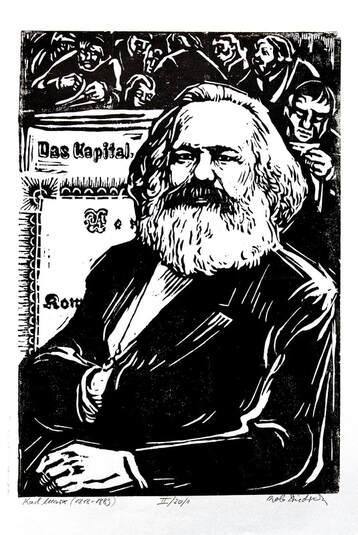
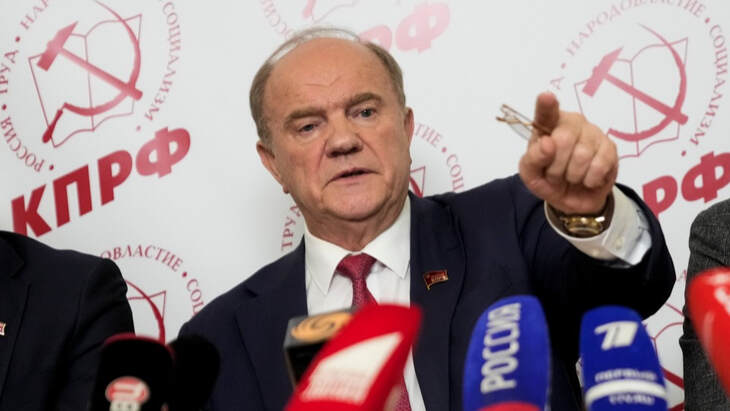




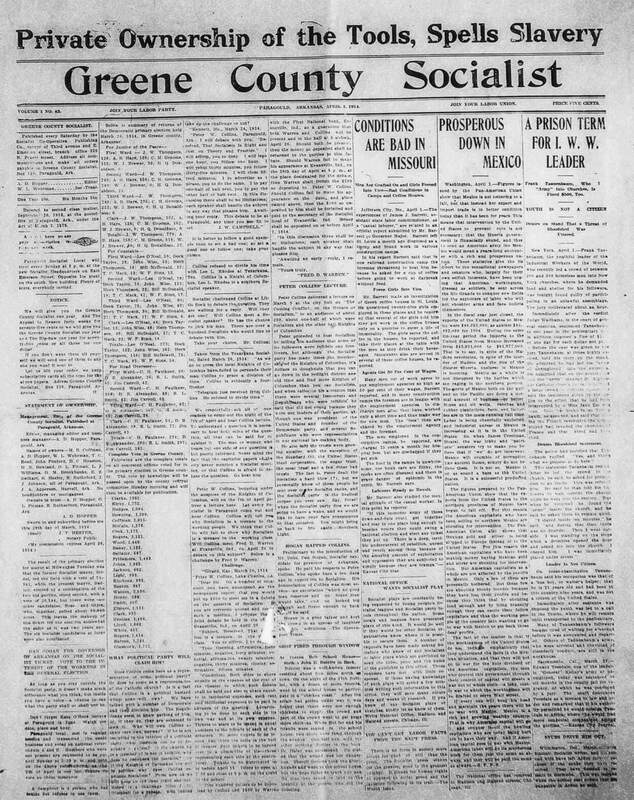

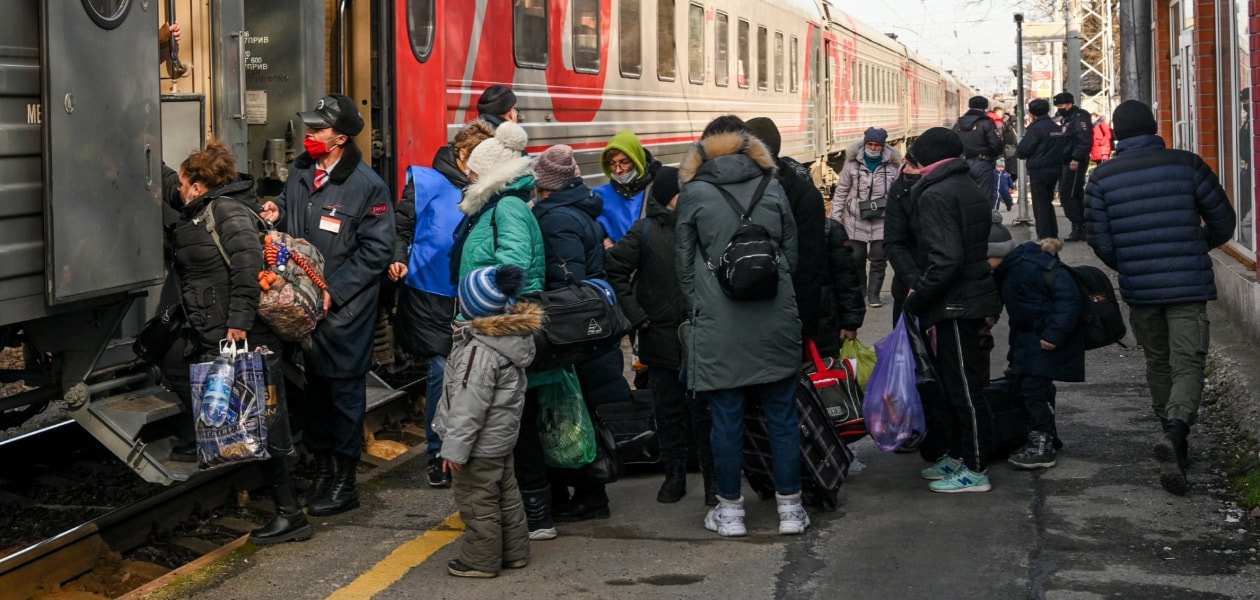


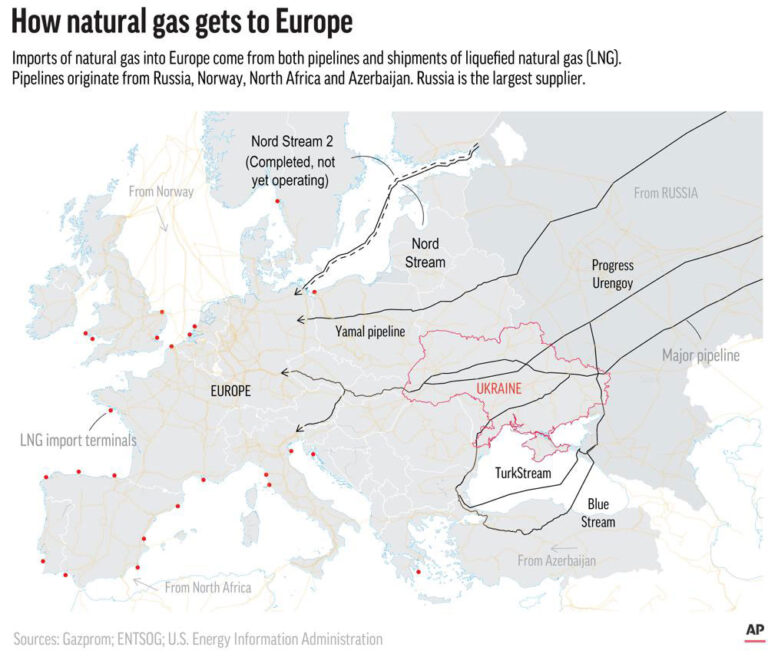

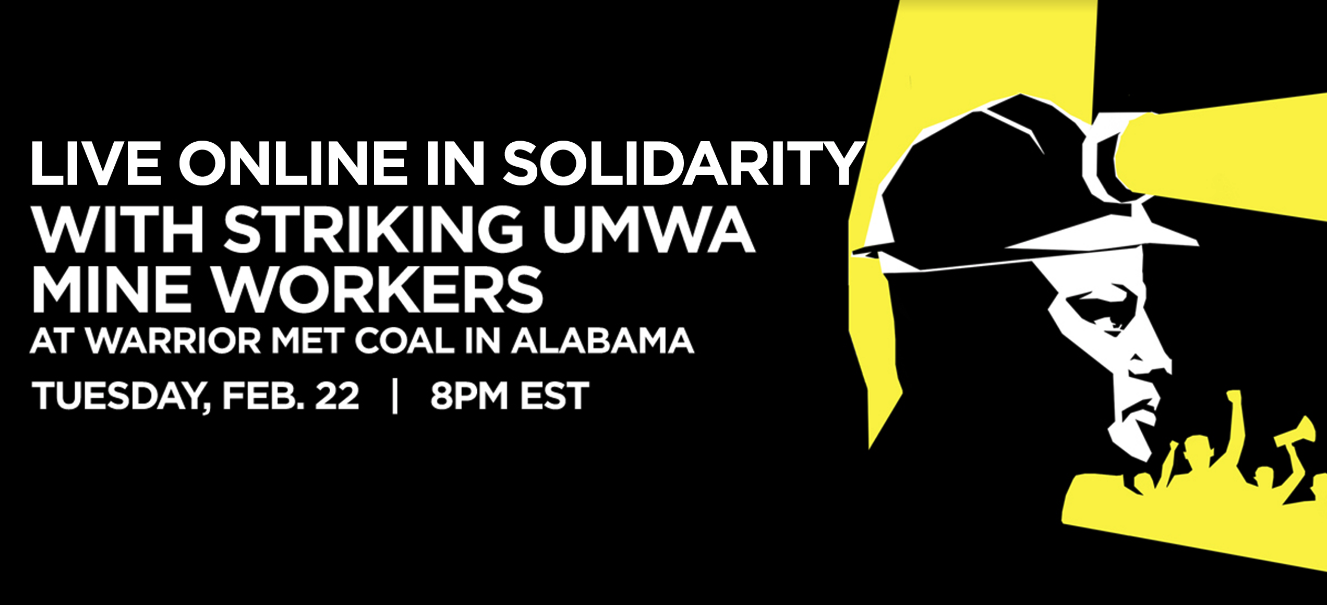

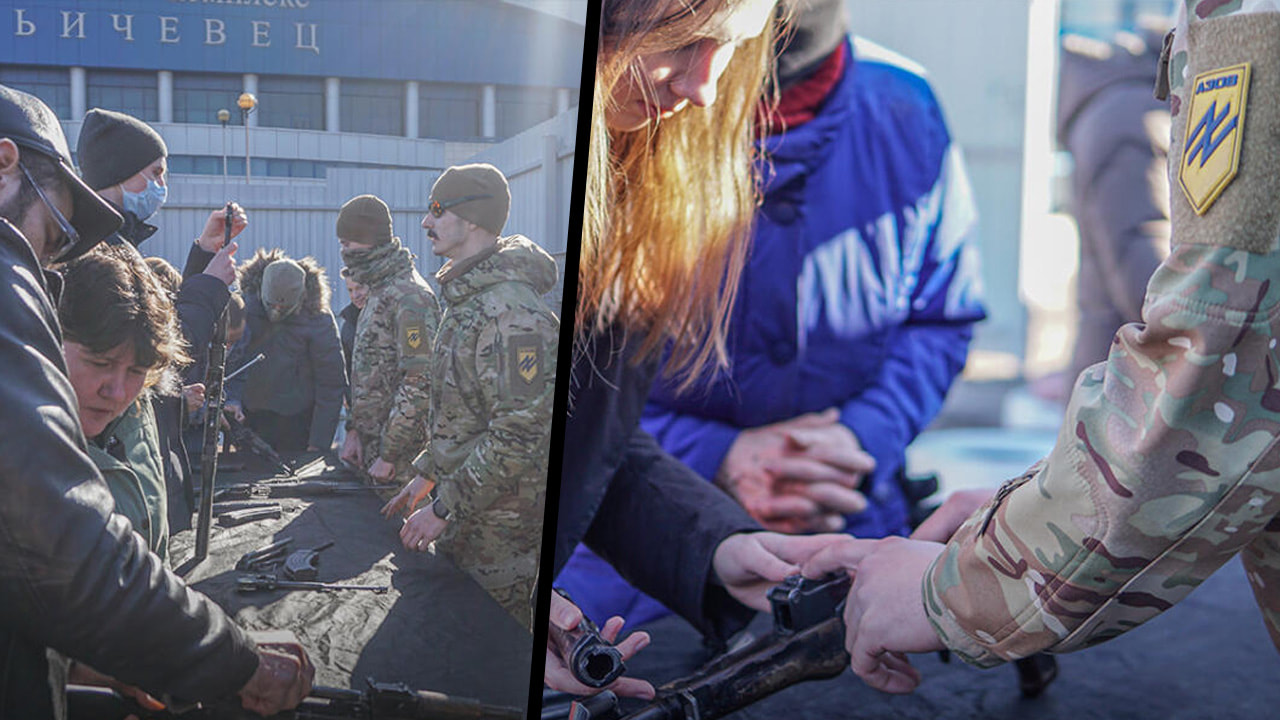

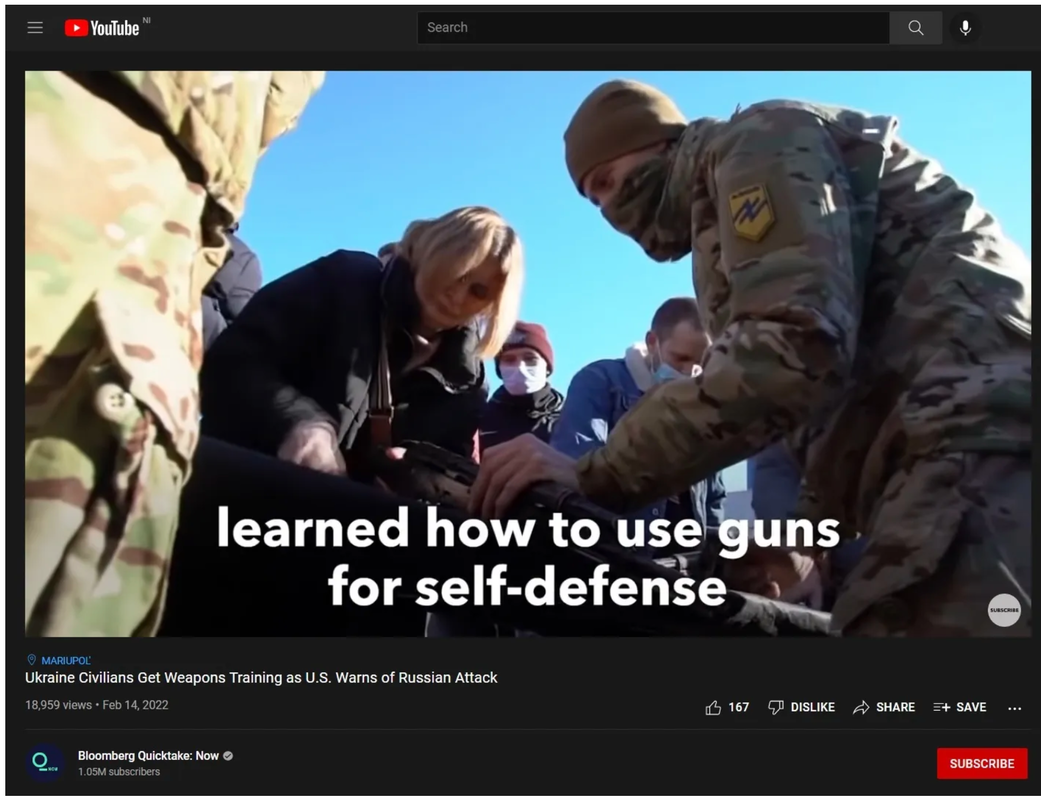


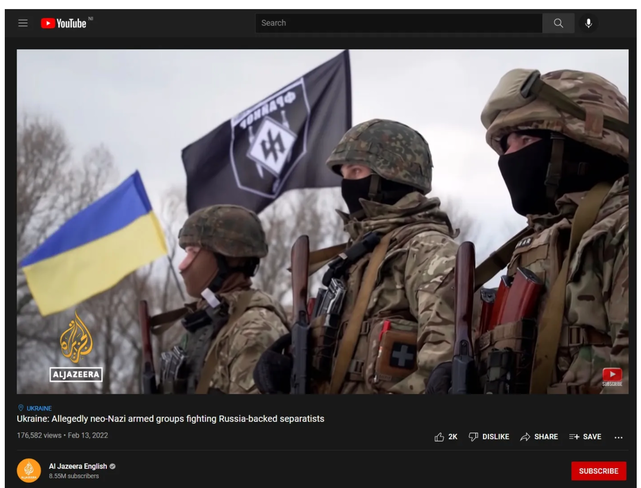



 RSS Feed
RSS Feed